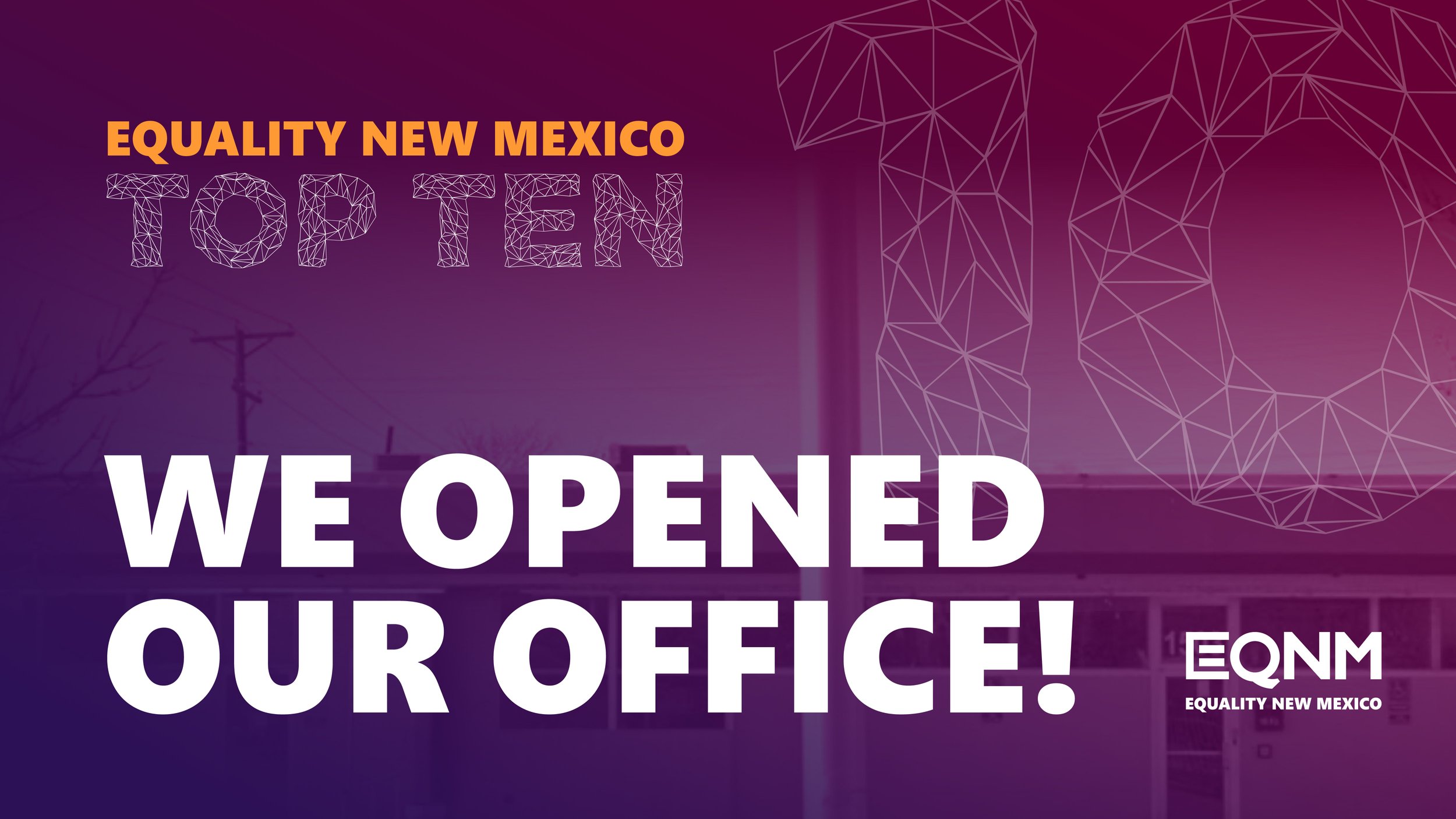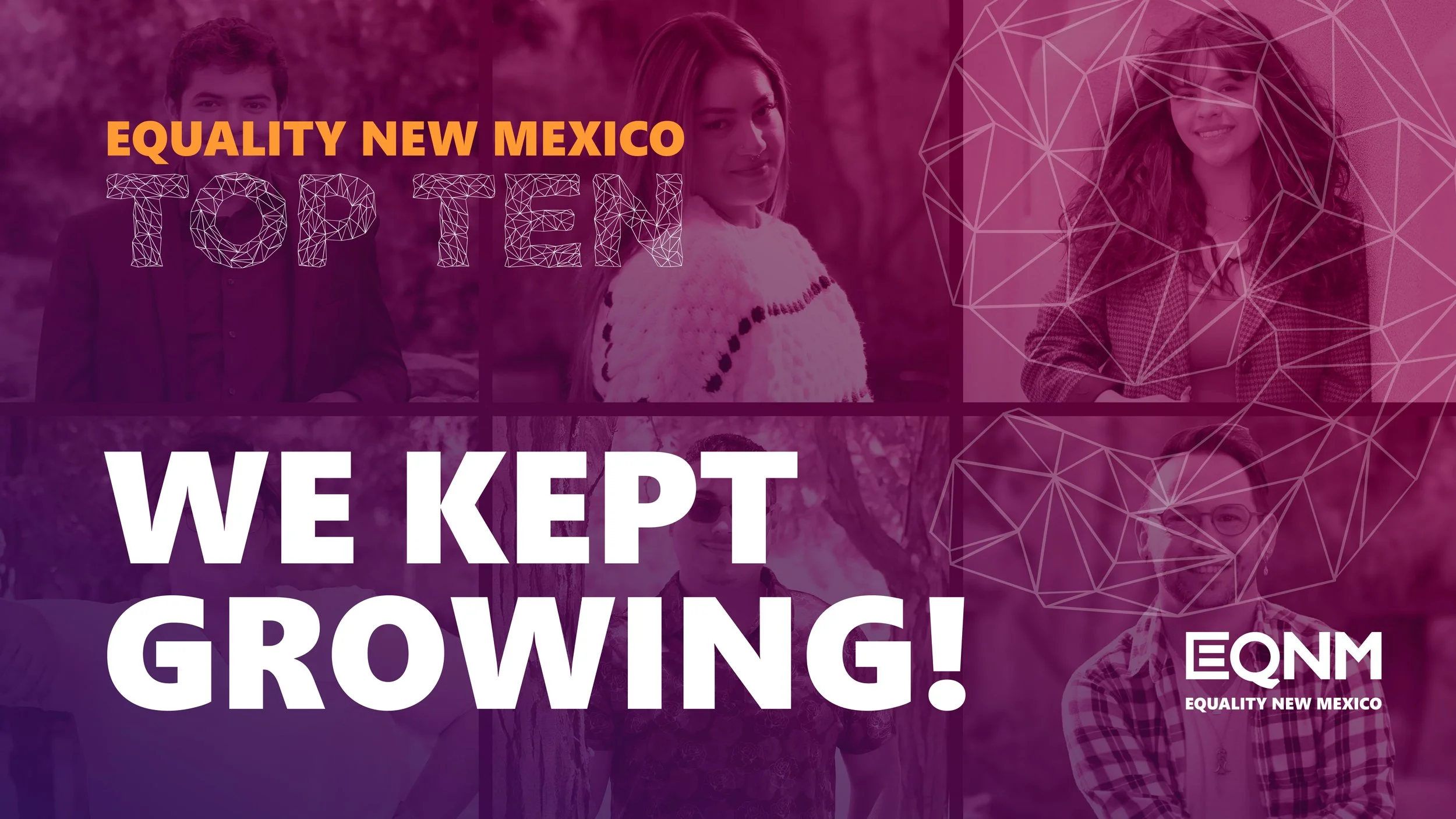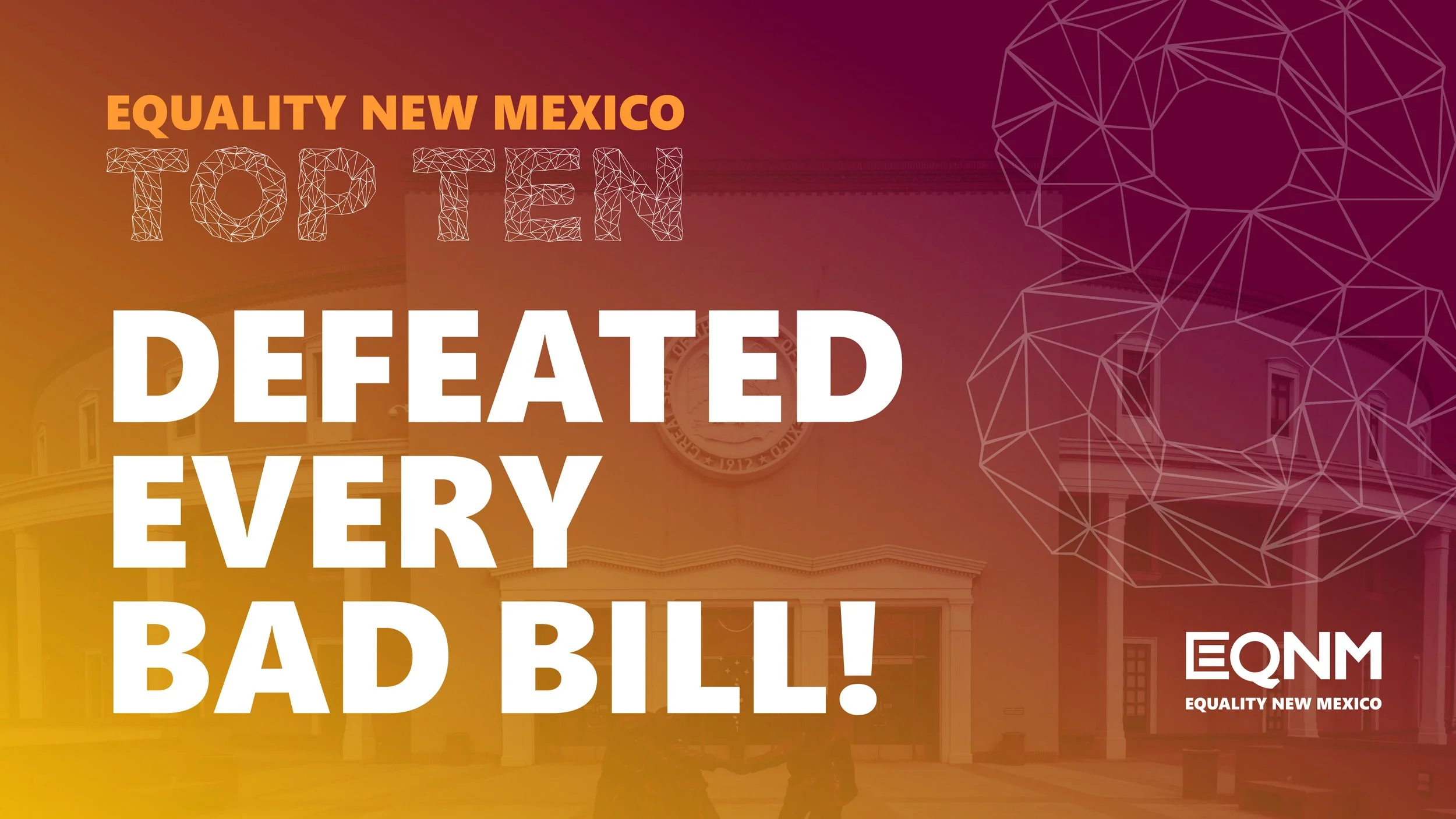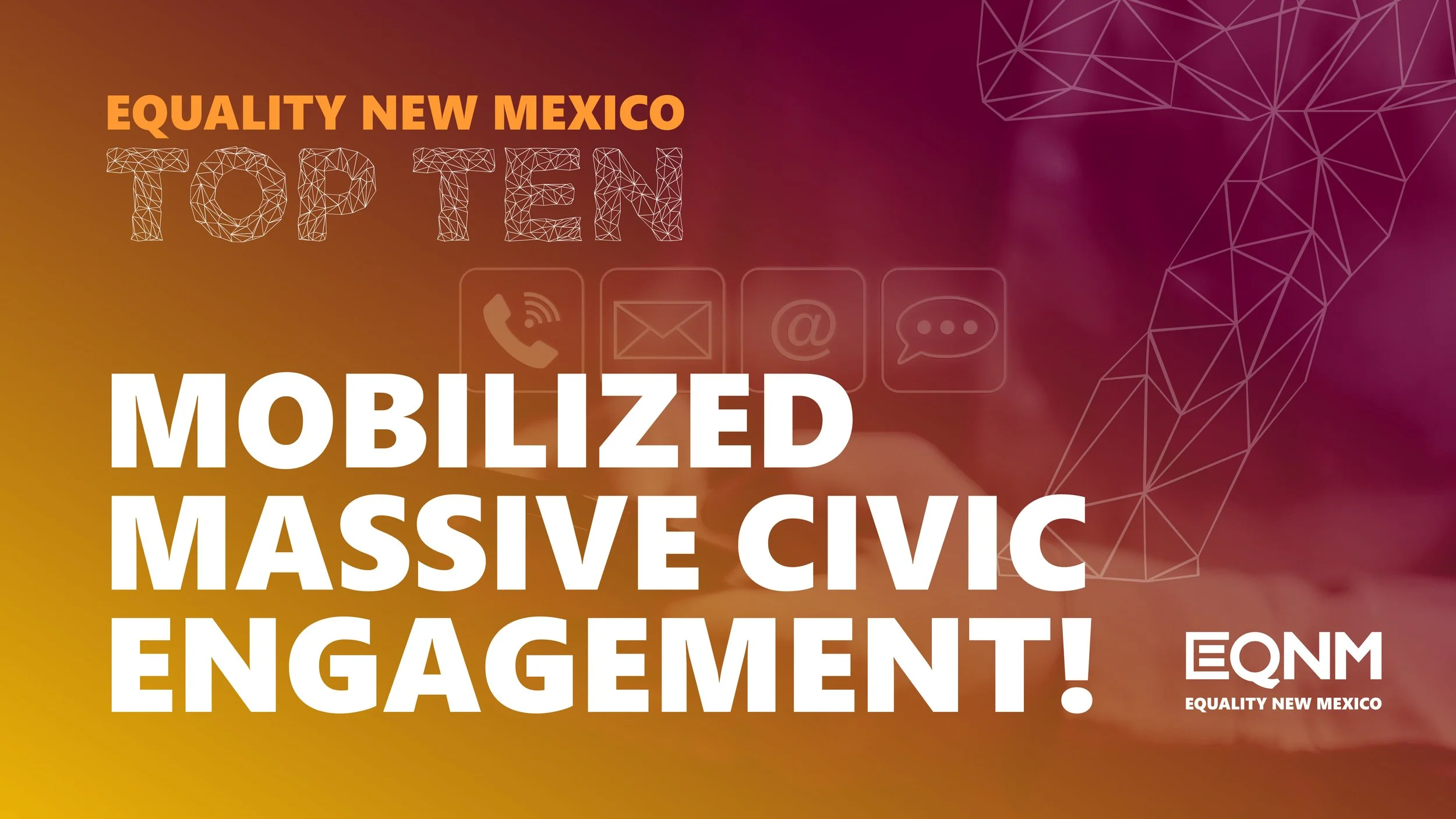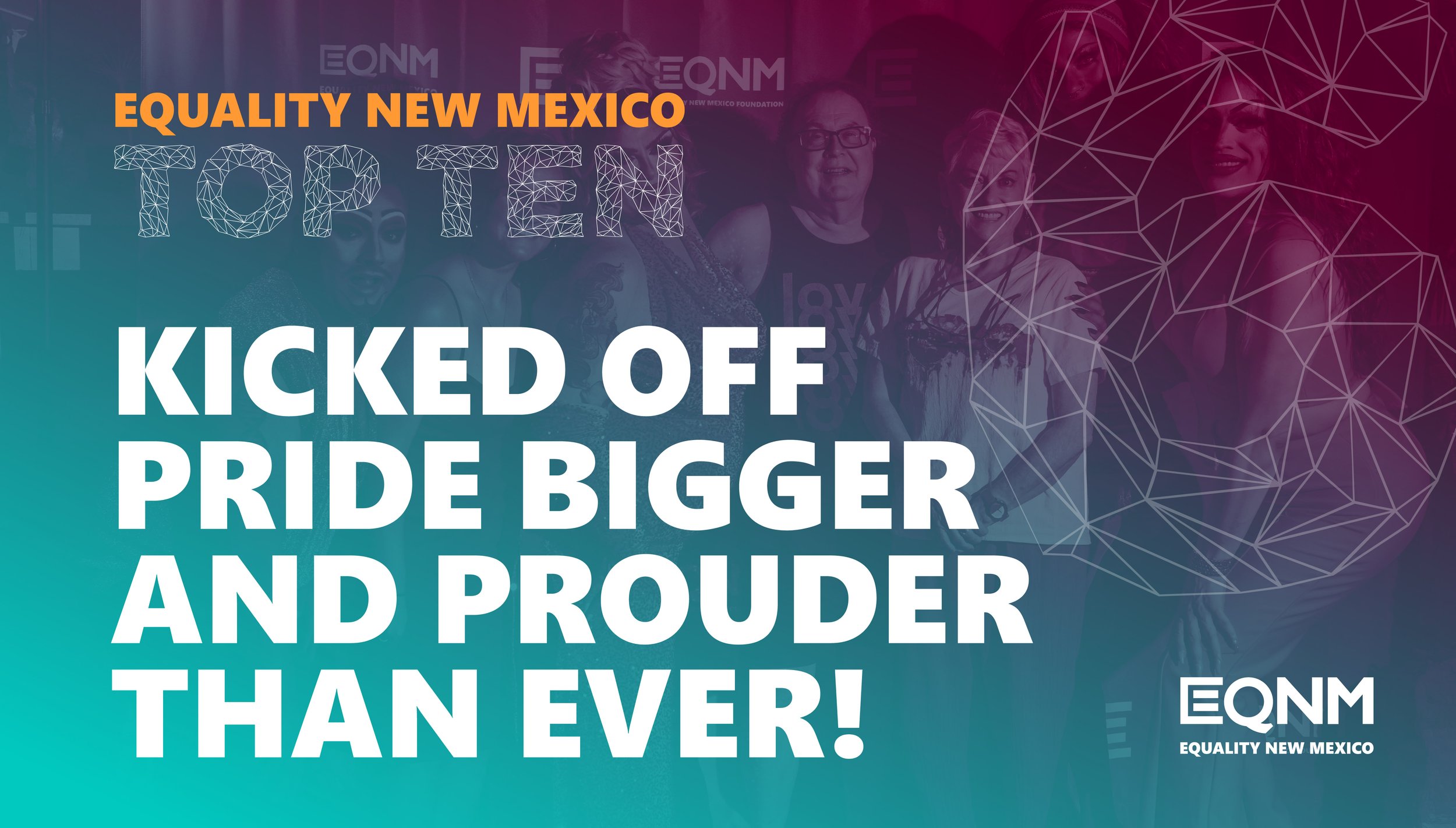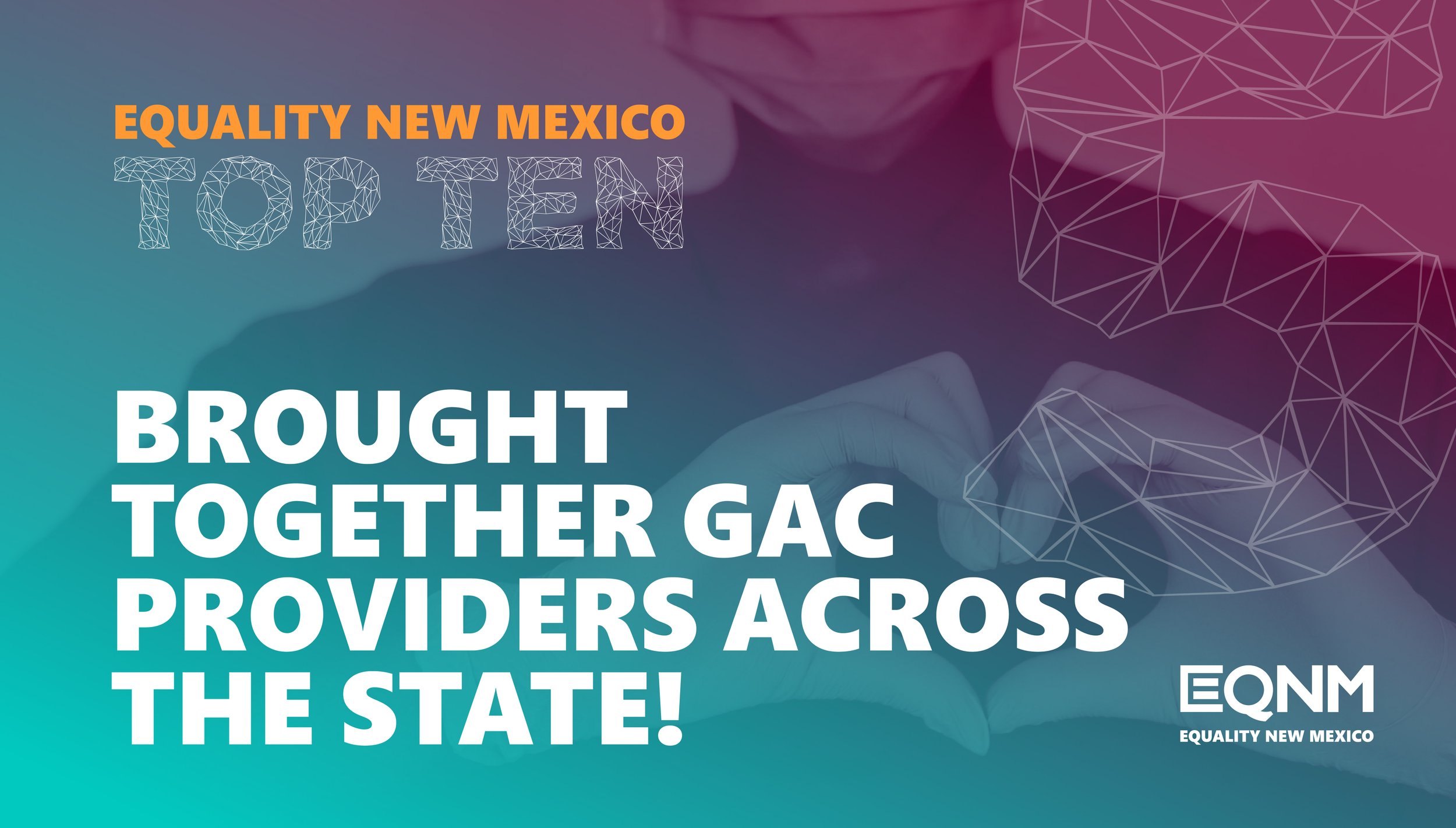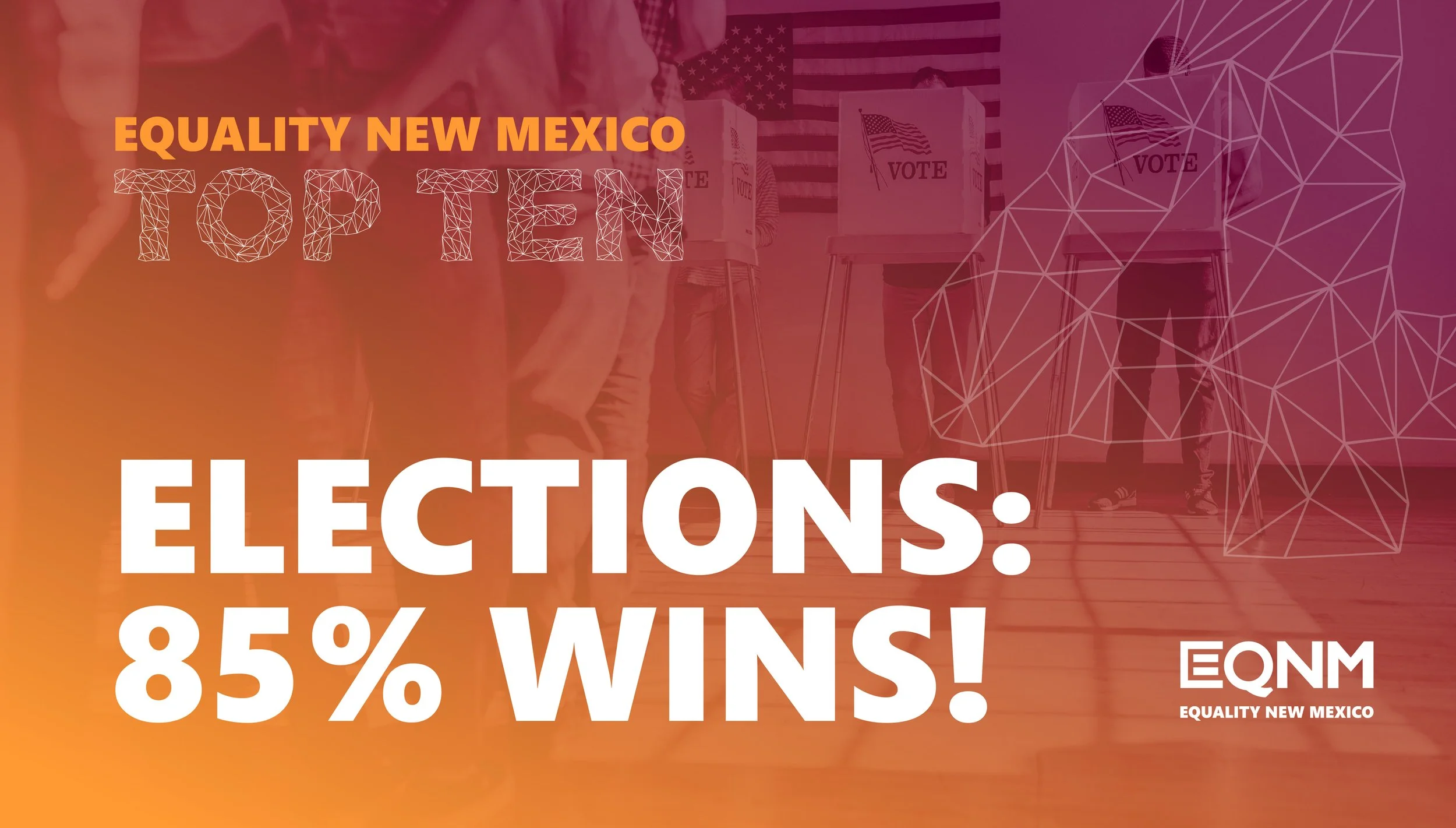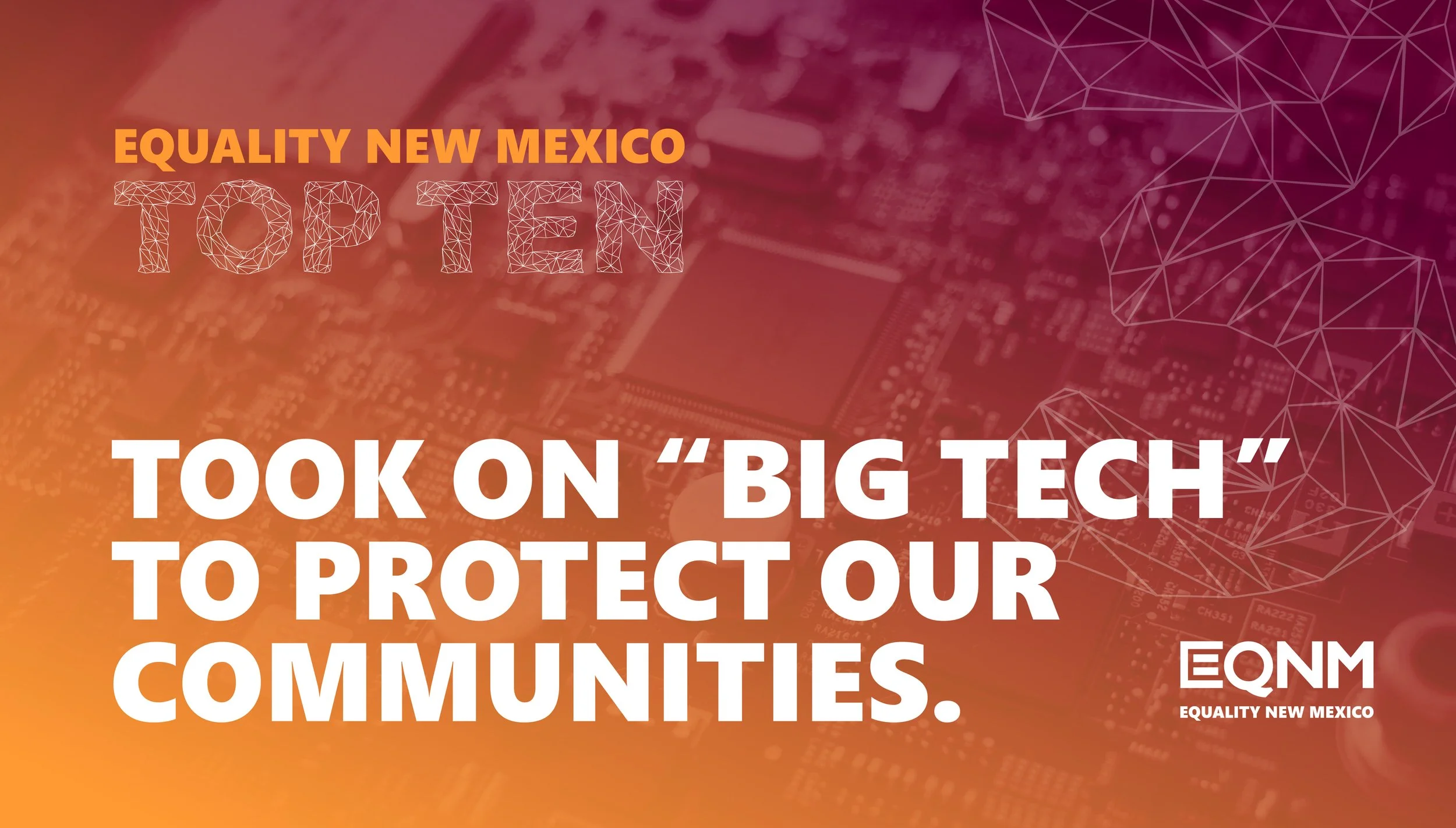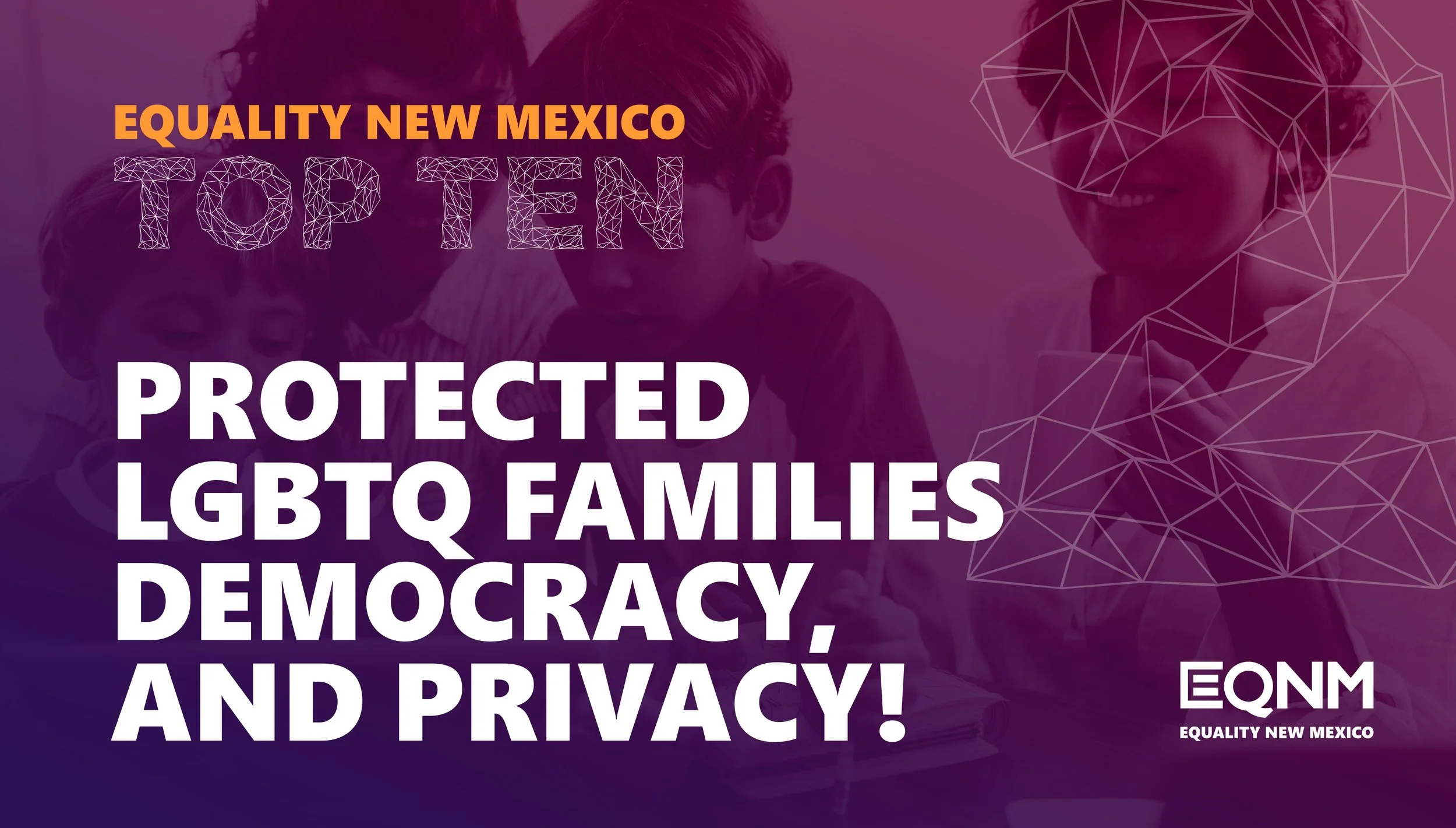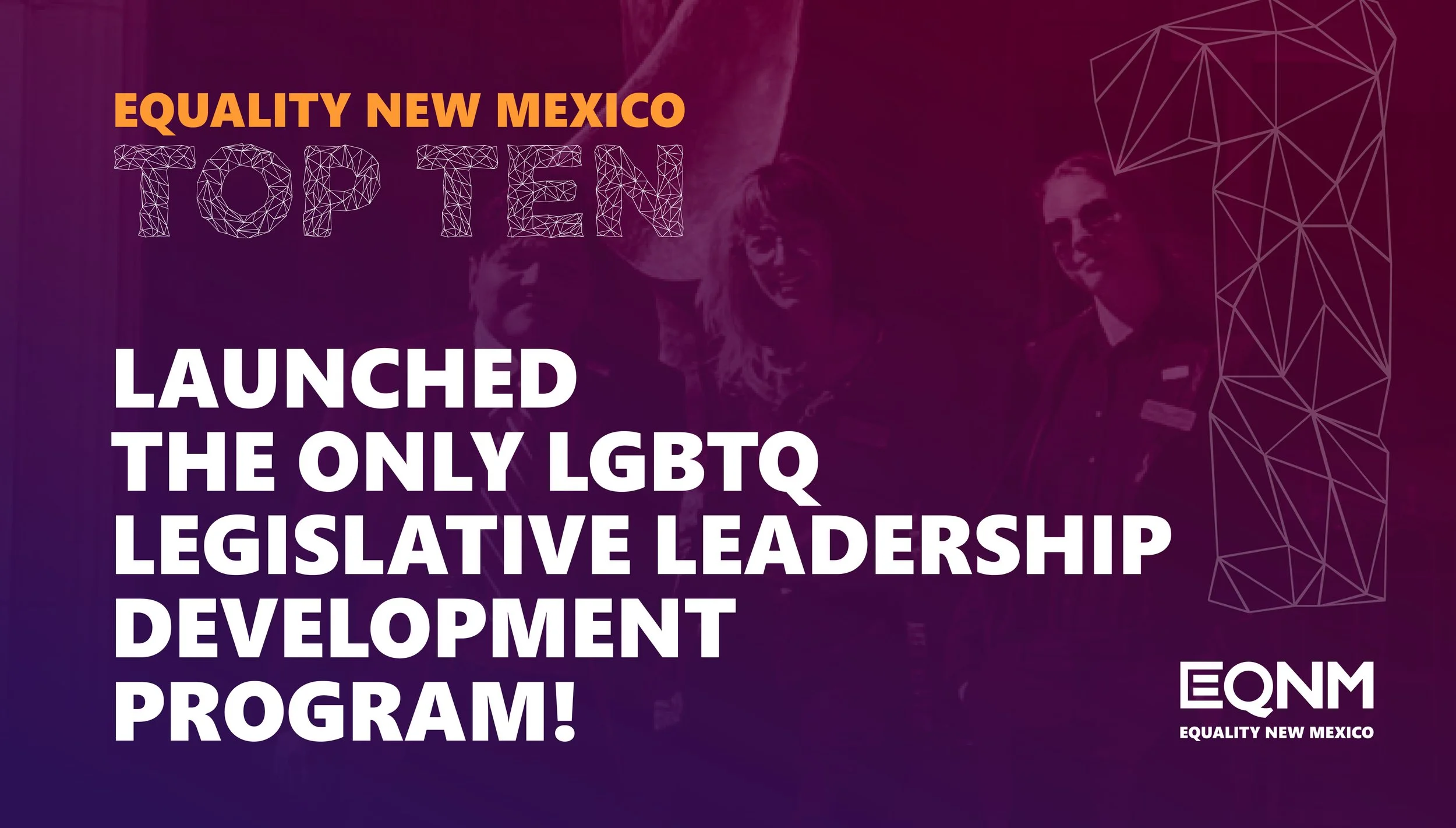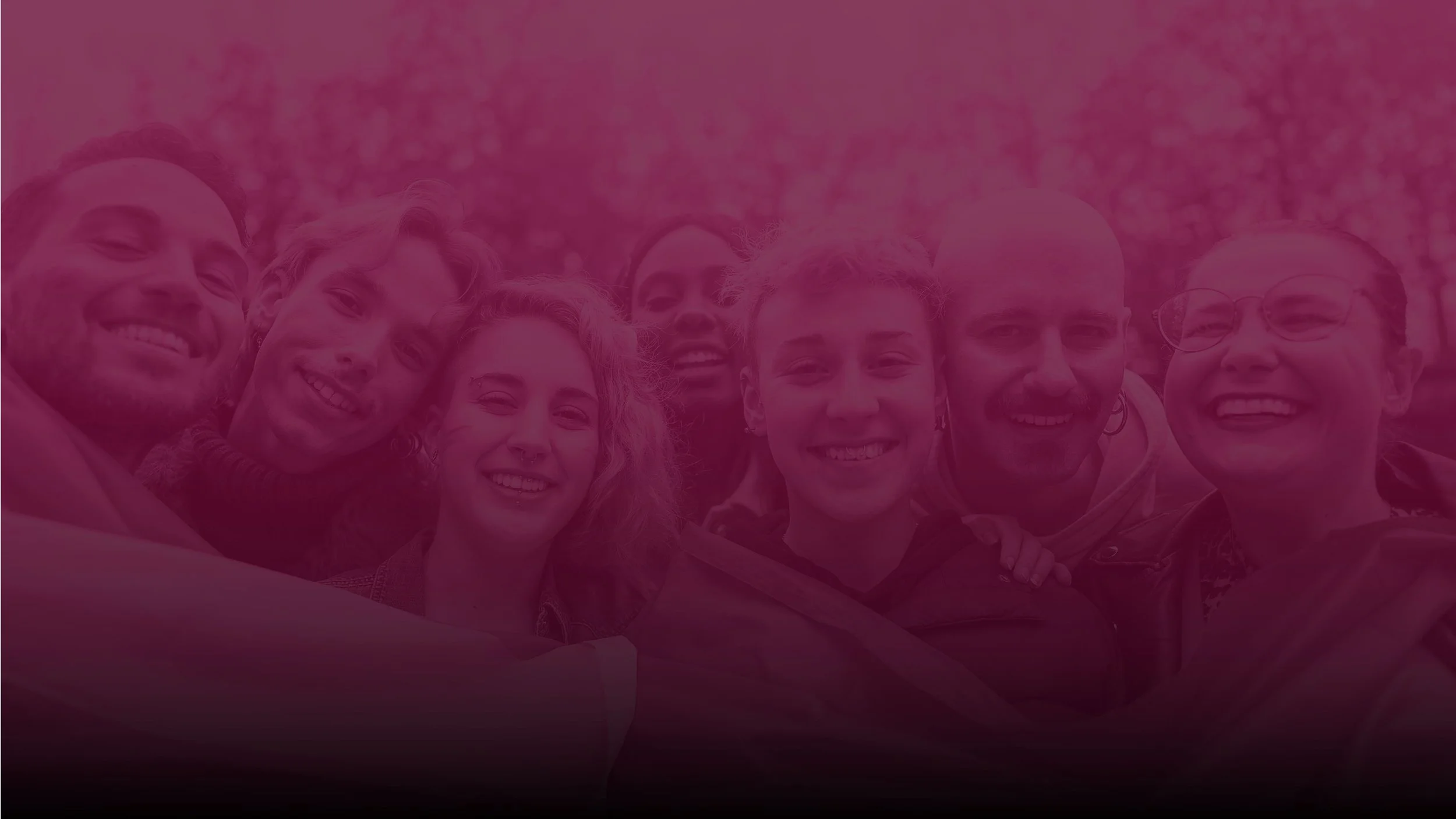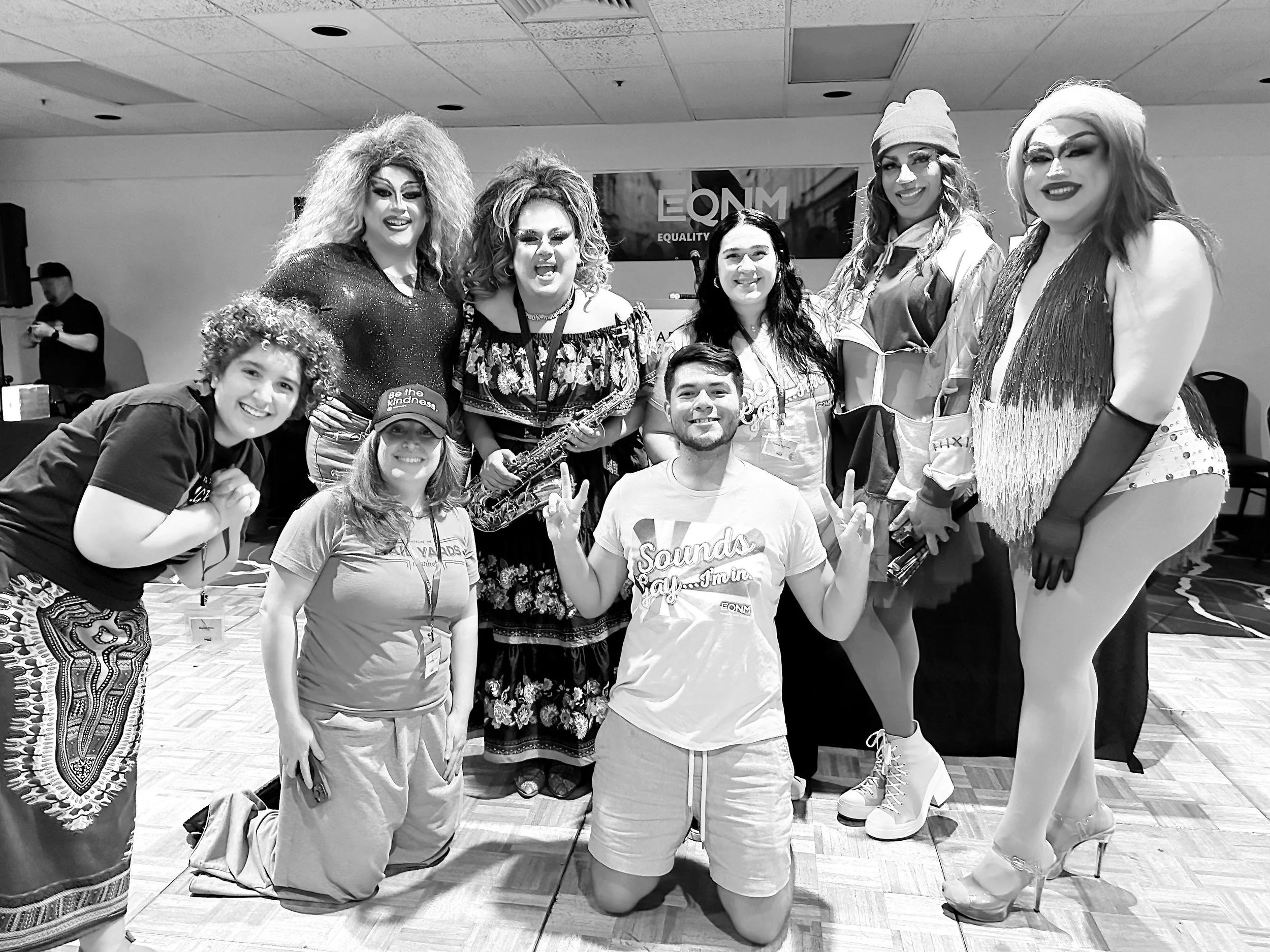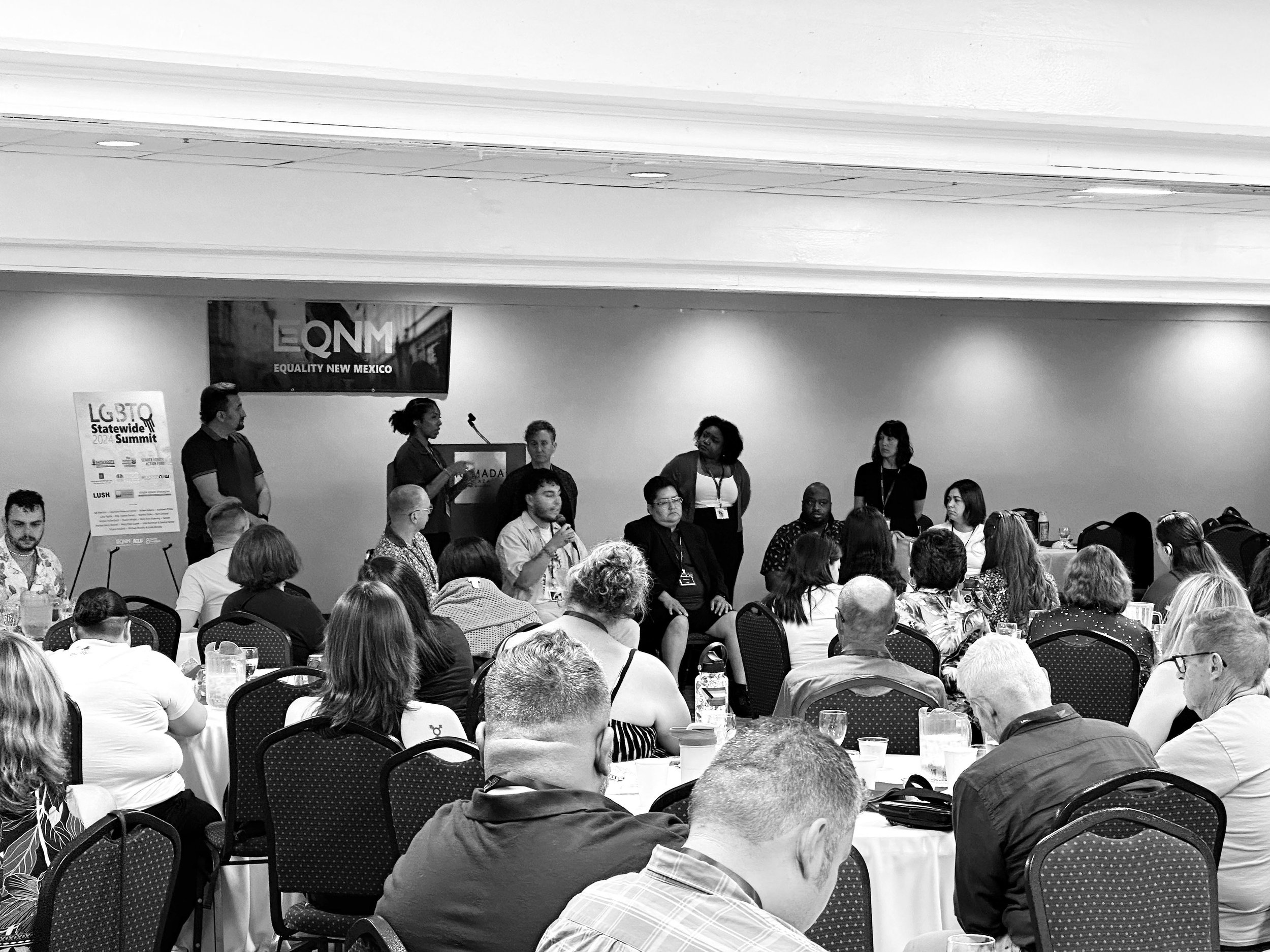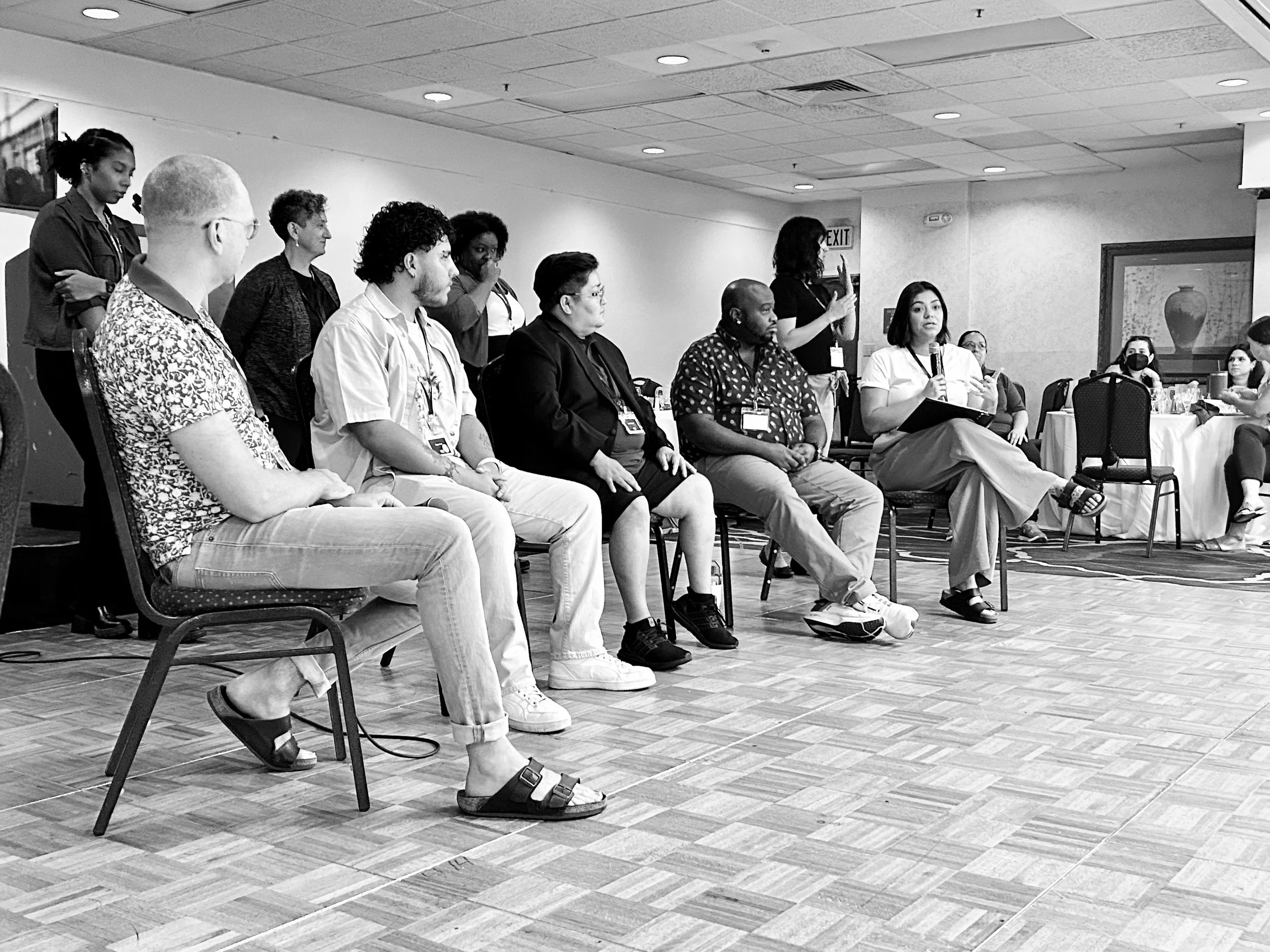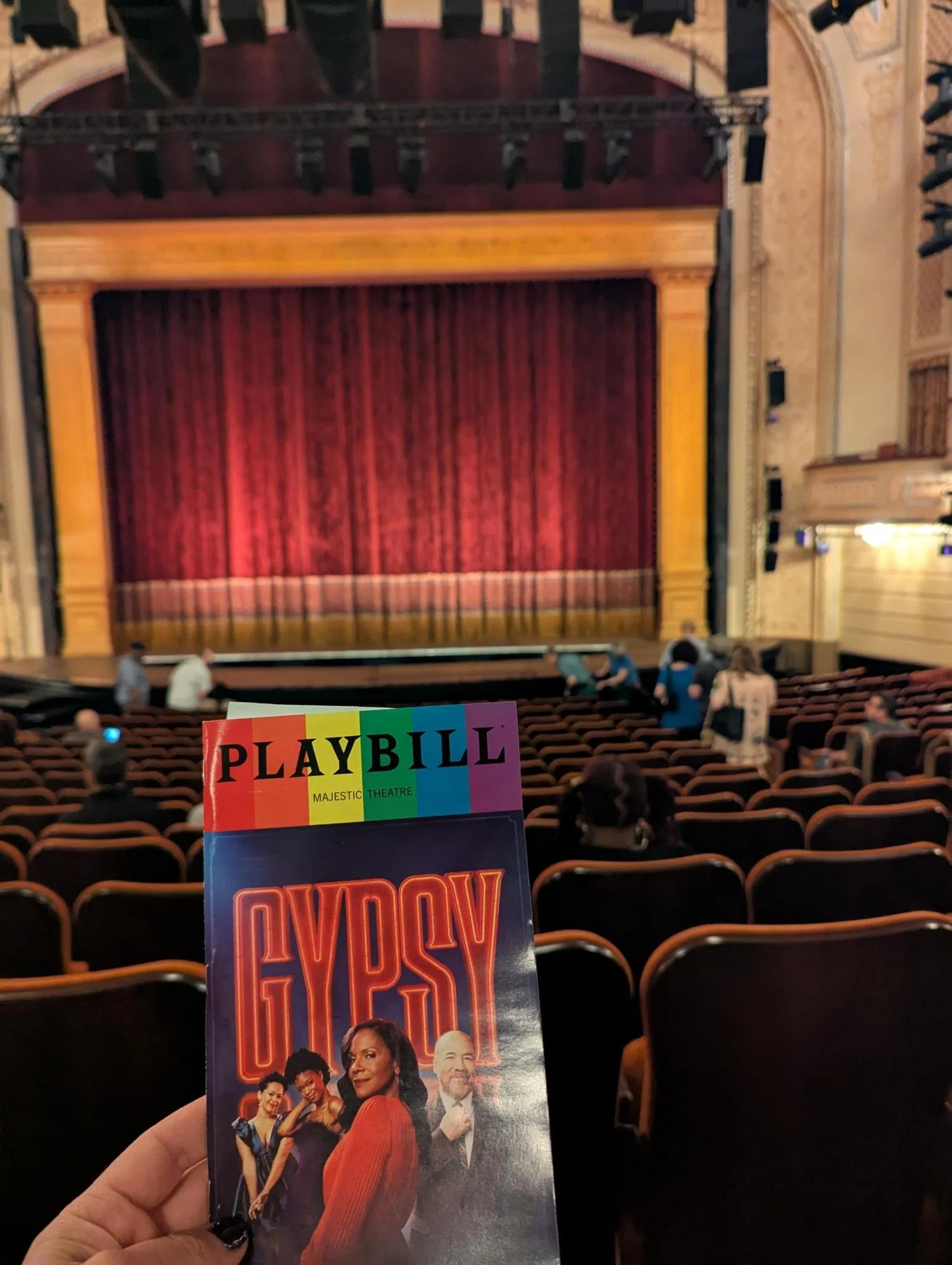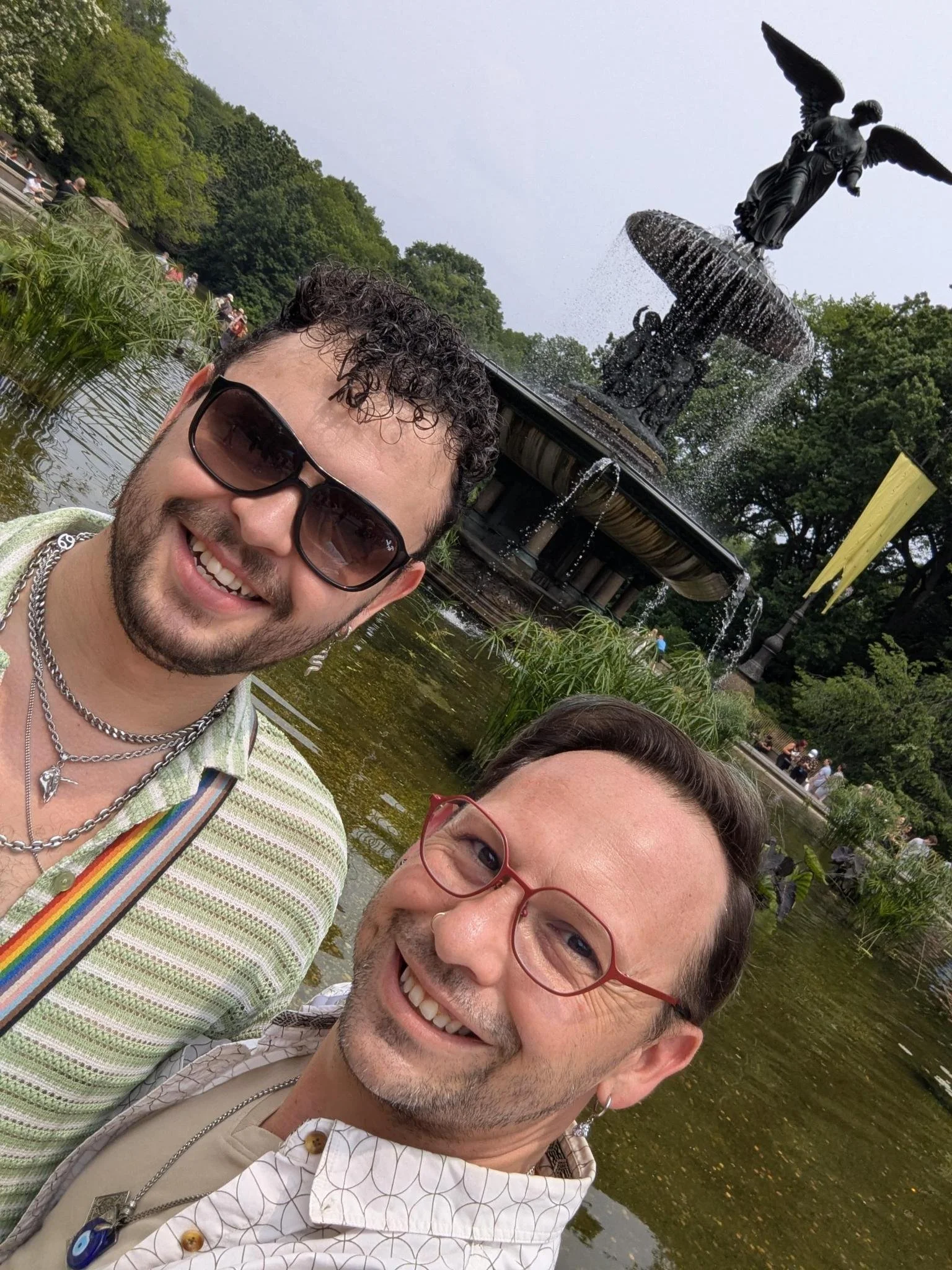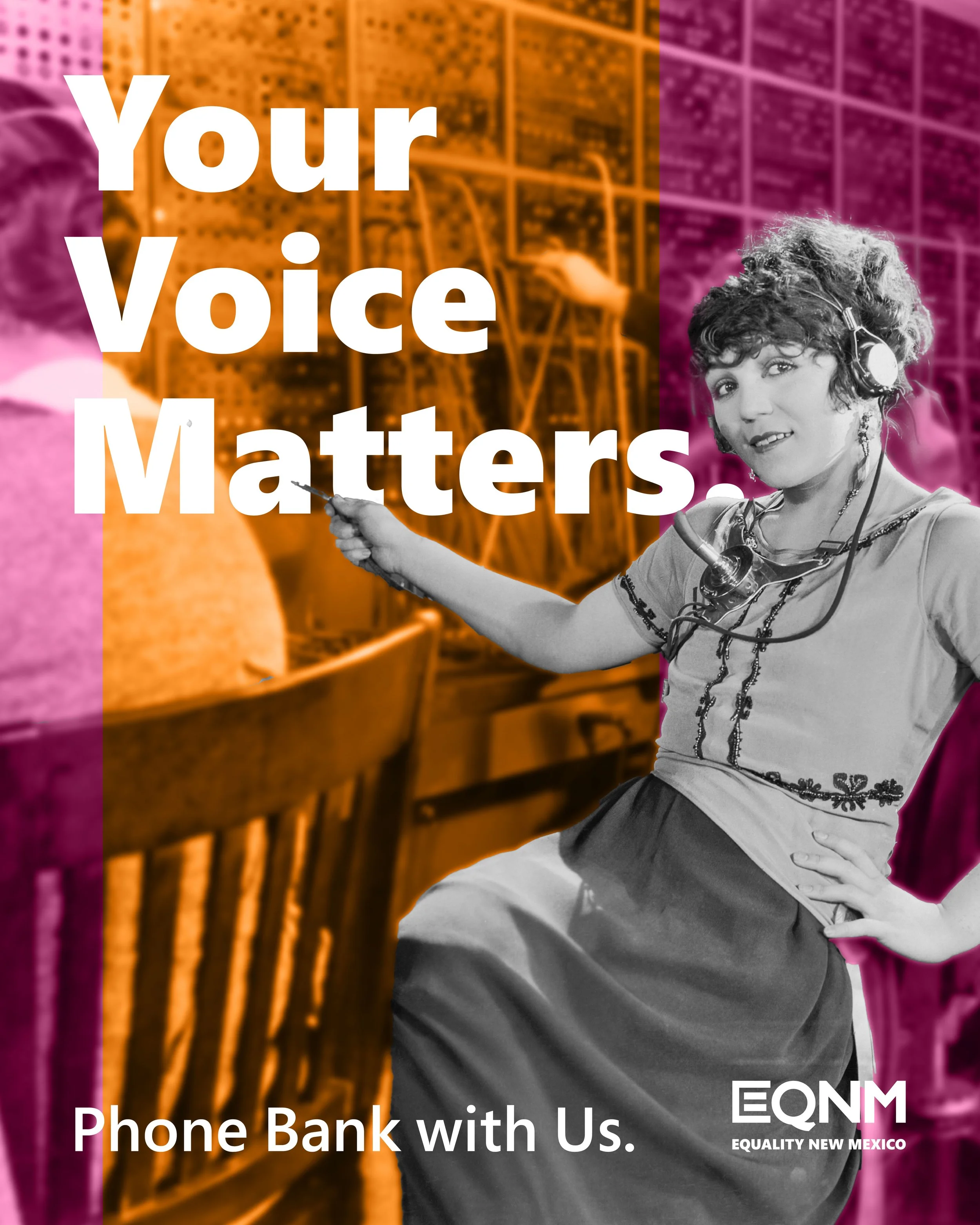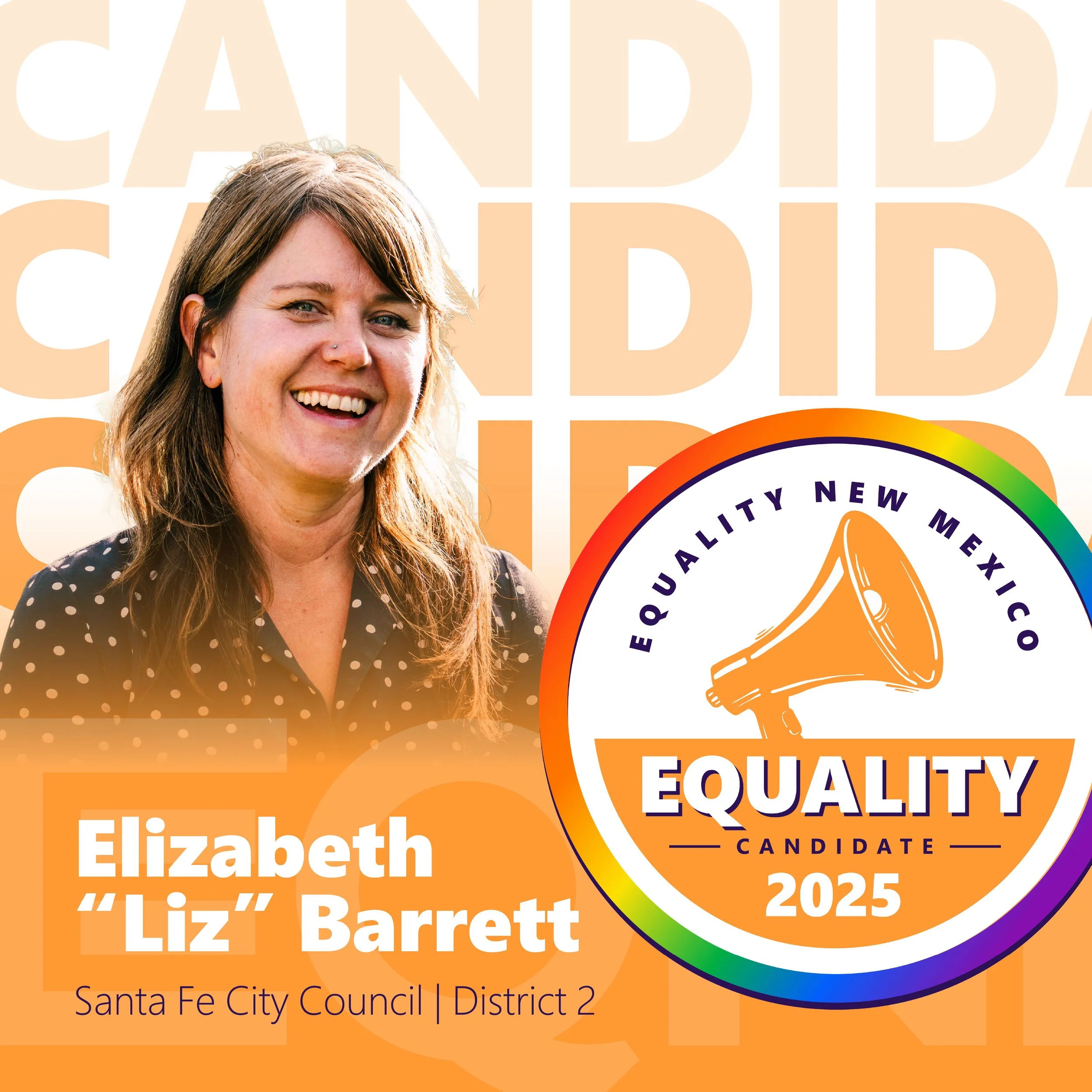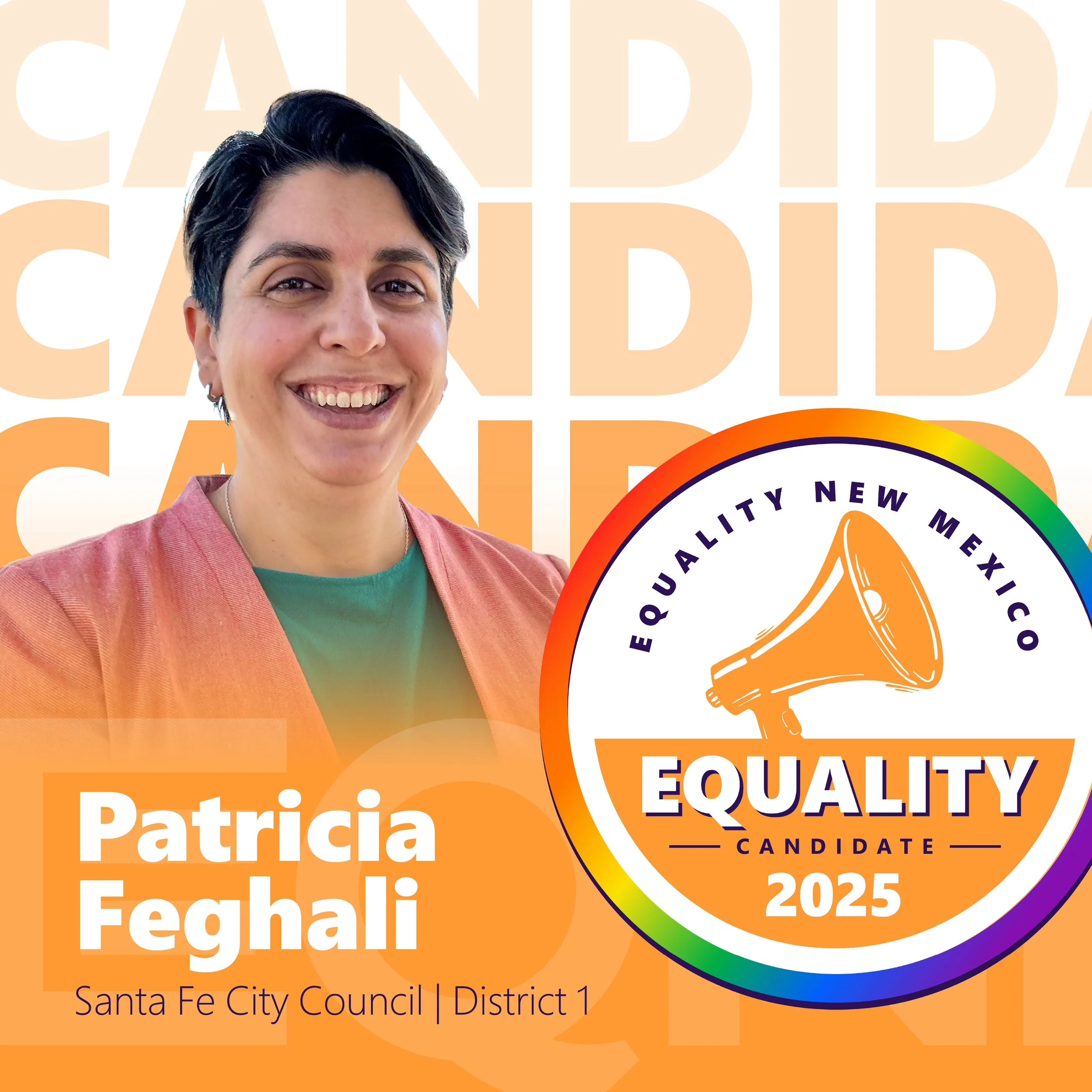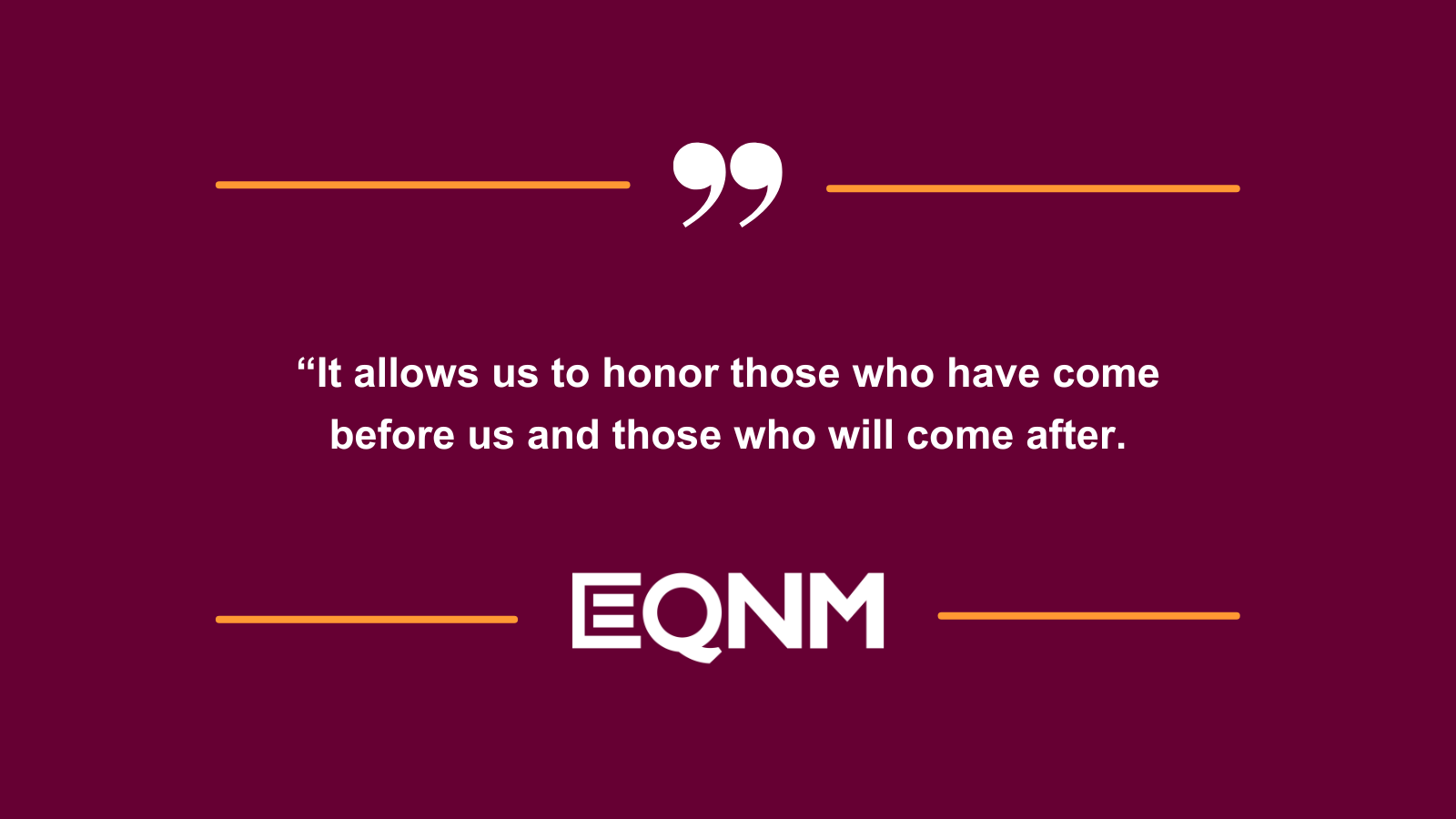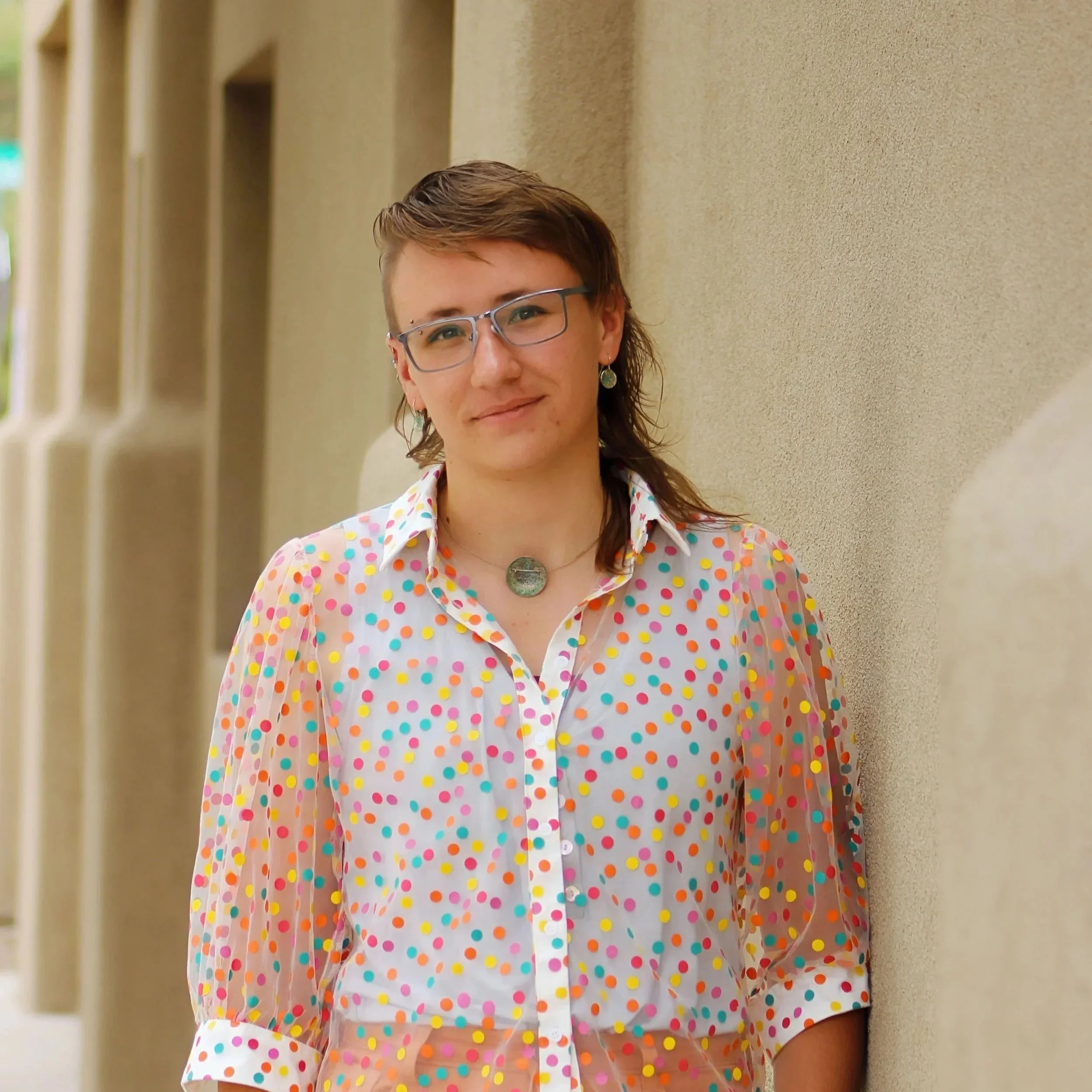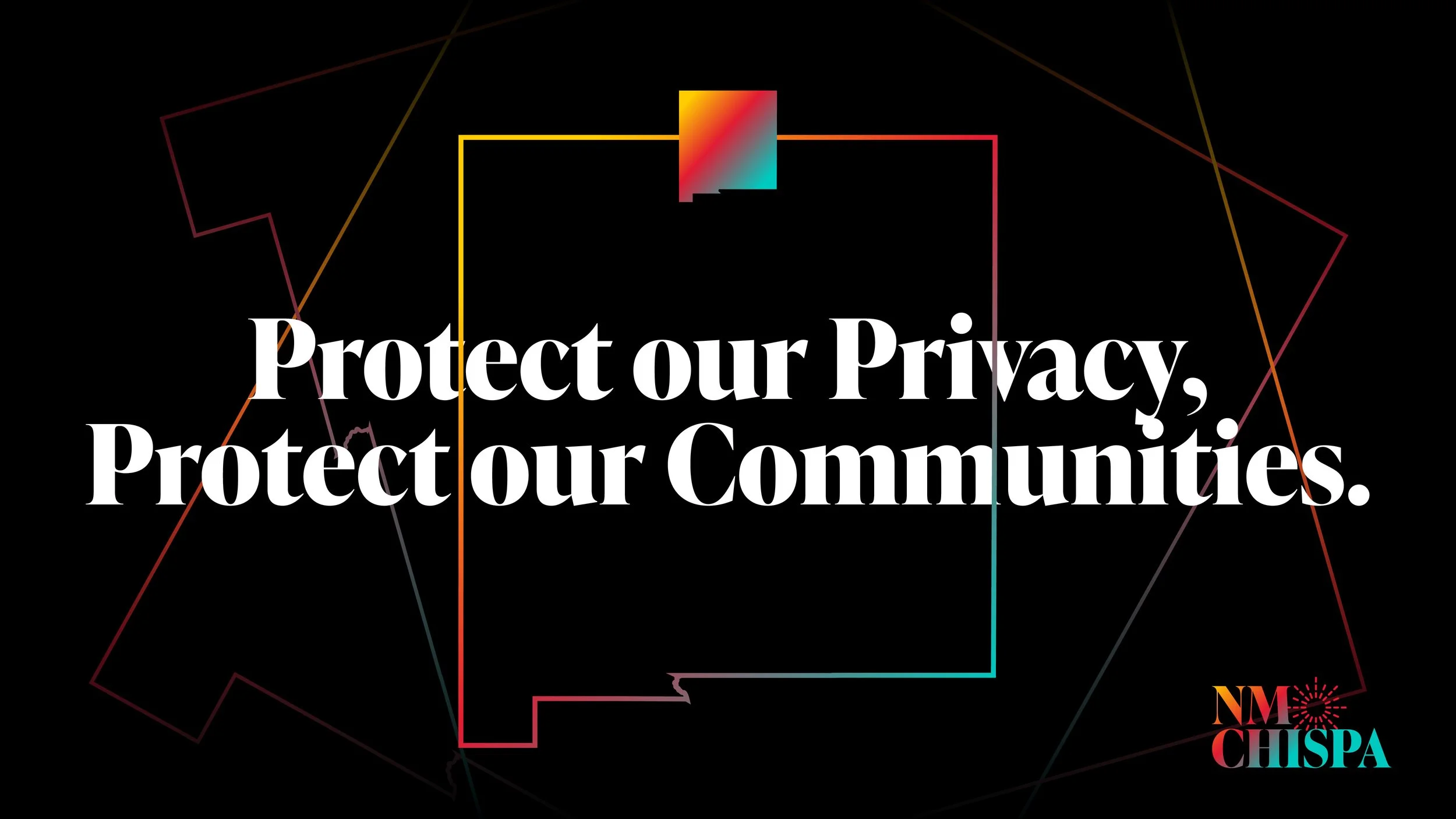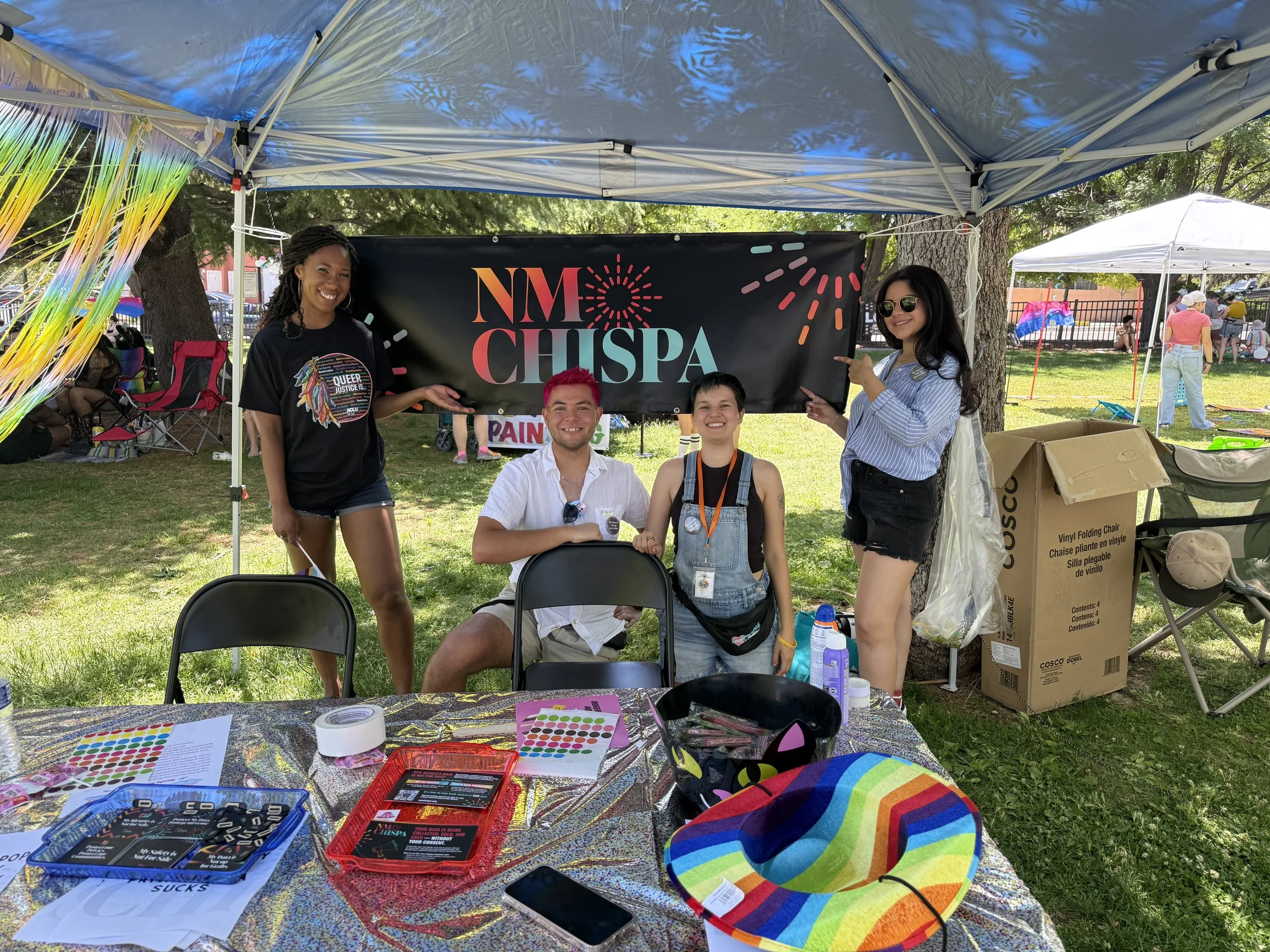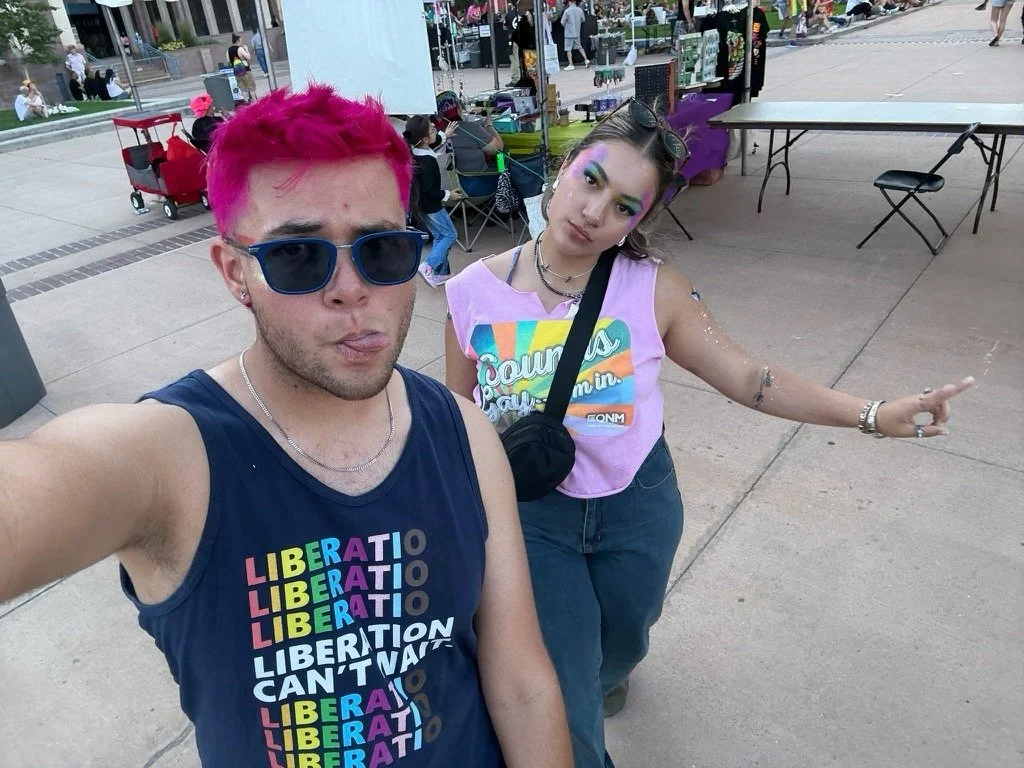2025 was a year of growth, reflection, and action. We couldn’t make any of this possible without your support, so let’s celebrate our biggest moments together! We are grateful for you, and we look forward to continuing to build our movement in 2026.
JOIN OUR TEAM:
LGBTQ Statewide Summit Event Coordinator
Equality New Mexico (EQNM) is hiring an Event Coordinator to support the planning and execution of our LGBTQ Statewide Summit. This role is remote with required in-person work in New Mexico during the Summit. The position pays 75 dollars per hour, not to exceed 20 hours per month or 14,000 dollars total for the contract. Travel and lodging for in-person work are covered. This role reports to the Chief Liberation Officer.
Equality New Mexico works to build an empowered, connected, and inclusive LGBTQ community across the state. We bring people together through advocacy, leadership development, and community building, all with the shared purpose of creating a stronger future for LGBTQ New Mexicans.
About EQNM
The Event Coordinator will lead the planning and execution of the LGBTQ Statewide Summit, a gathering that brings LGBTQ people together from across New Mexico, including rural communities. This role organizes the details that create a smooth, welcoming, and powerful experience for attendees. You will work closely with EQNM staff, volunteers, vendors, and partners to keep the event running on track.
The Role
What You Will Do
Coordinate vendors for catering, entertainment, rentals, and logistics, including contract review with leadership.
Support sponsorship and partner fulfillment before, during, and after the Summit.
Collaborate on workshop and session logistics with the Director of Policy and People.
Manage ticketing, registration, and attendee communications.
Organize, train, and schedule volunteers with the Community Engagement Strategist.
Oversee setup and takedown to ensure all details run smoothly.
Track budgets, maintain expense records, and ensure materials are produced on time.
Provide weekly updates to leadership and join Summit-related staff meetings.
Who You Will Work With
Chief Liberation Officer
Director of Policy and People
Director of Influence, Experience and Culture
Internal Liberation Strategist
Community Engagement Strategist
Narrative and Voice Strategist
Development & Engagement Strategist
Preferred Qualifications
Whova or other digital event management tools
Event planning experience
LGBTQ cultural competency
Strong writing and verbal communication
Problem solving and time management
Ability to work with minimal supervision
Time Commitment
This role includes flexible remote work leading up to the Summit and in-person work in New Mexico for setup, the event itself, and takedown. Average time is about five hours per week, with variations based on the event schedule.
Why Join Us
This is an opportunity to support a mission-centered team advancing LGBTQ rights and leadership across New Mexico. You will help create an event that promotes connection, community, and statewide empowerment.
Apply Now
Send your resume and a short cover letter to Info@eqnm.org by December 31, 2025.
Across the country, immigrant communities are facing increasing violence. Masked agents are kidnapping people, stoking violence within communities, and physically tearing apart families - leaving children crying while they're pried out of the arms of their loving parents. Entire communities are living in panicked hiding. These actions are not isolated events but part of a broader pattern of cruelty designed to strip dignity from those who are already marginalized.
“We know that justice for LGBTQ people cannot be separated from justice for immigrants, because so many in our communities hold both of those identities.”
The fight to protect immigrants is being led in New Mexico by groups like the New Mexico Immigrant Law Center, Contigo Immigrant Justice, ACLU-NM, and many others. These organizations have worked tirelessly to mitigate harm, pass legislation, and educate the public.
Between the new detention facility at Fort Bliss, and the guidance released to detention centers to stop counting demographics like gender-expansivity or non-heterosexuality, it’s more crucial than ever that we support our immigrant organizations, fight for the Immigrant Safety Act, and stand with Queer and Trans immigrants.
“We know that the people detained across New Mexico’s three detention centers can’t wait one more day for relief. Every day someone is detained is another day they are away from their family, their job, and their basic human dignity. New Mexico has the power to take action and end the suffering of those detained and protect others from enduring these unsafe conditions by passing the Immigrant Safety Act. The Immigrant Safety Act would prohibit New Mexico state and local governments from entering into agreements to detain people in federal civil immigration custody. This bill would close a loophole that allows ICE and for-profit detention contractors to use New Mexico counties as passthroughs to avoid normal scrutiny of the disastrous safety records of those contractors in running New Mexico’s immigration detention centers.” -Jessica Martinez, New Mexico Immigrant Law Center
Queer immigrants live a distinct experience. They often flee violence, discrimination, and economic instability in their countries of origin, only to face new dangers in the United States. For LGBTQ immigrants, detention is life-threatening, with reports of abuse and denial of medical care. For trans immigrants, the risks multiply. Discrimination at the border, compounded with the barriers of language and legal status, makes survival a daily act of courage. When the country enacts policies that target immigrants, Queer and Trans immigrants feel the blow twice over.
We know that immigrants are part of the fabric of our state. They are our neighbors, our coworkers, our classmates, and our loved ones. We know that queer immigrants build families here, create art here, labor here, and lead movements here. Our liberation is tied together.
When one community is attacked, the safety of all is threatened. To stand for queer liberation without standing for immigrant justice would be to deny the very principle of solidarity.
It is vital to remember that our state has a long history of resilience and collective care. Immigrants in New Mexico have organized for decades to expand access to education, healthcare, and protection from deportation. Many of these victories have been won through coalitions that bring together immigrants, LGBTQ people, workers, and faith communities. These alliances remind us that power grows when we refuse to be divided.
“In light of what we are witnessing across the country, we must ensure the safety of our community. We must stand in our power as a community and continue to uplift voices of immigrants who are enduring dangerous conditions, due process violations, racial profiling, and systems of harm. We as a state have the power to end the suffering of detainees and ensure the safety of our community and that is by taking a stance to refuse to be complicit in human rights abuses. Our movement continues to grow and we will keep advocating for the Immigrant Safety Act and working with our champions in the legislature until this bill is passed.”- Jessica Martinez, New Mexico Immigrant Law Center
There are resources here for those seeking support. Organizations such as:
New Mexico Immigrant Law Center provides legal assistance and advocacy for immigrant families.
Somos Un Pueblo Unido organizes immigrant workers and fights for policies that expand protections.
Contigo Immigrant Justice (formerly Santa Fe Dreamers Project) supports undocumented people, especially LGBTQ+ immigrants, with legal and social services.
The Transgender Resource Center of New Mexico offers direct support and advocacy for trans and nonbinary people, including immigrants.
Together, these groups create a network of care that ensures people are not left to face attacks alone.
We remain committed to building a state where all people can live with safety, dignity, and belonging. That commitment requires us to speak out against every attempt to criminalize immigrants and to fight alongside them for justice. It requires us to listen to queer immigrants in our community and follow their leadership. It requires us to recognize that immigrant justice is not a separate struggle from our own but part of the same fight for liberation.
We urge our community to take action. Support immigrant-led organizations in New Mexico. Show up at rallies and vigils. Educate yourself about the distinct struggles of queer and trans immigrants. Check in on your neighbors. Build relationships that cross boundaries of identity, status, and background.
By choosing solidarity, by insisting on intersectionality, and by lifting up the voices of queer immigrants, we can demonstrate the power of a community that refuses to be divided.
Part-Time Temporary
Development & Engagement Strategist
Equality New Mexico (EQNM), a statewide LGBTQ advocacy and public education organization, is excited to welcome a part-time, temporary Development & Engagement Strategist to our team. We’re looking for someone motivated, curious, and committed to supporting our work for LGBTQ New Mexicans. This role will play an important part in helping us meet fundraising goals that sustain and grow our vibrant organization.
JOB OVERVIEW
We’re seeking someone who has experience with grant writing, event planning, donor cultivation, stewardship, and solicitation, but we also value transferable skills and a willingness to learn. If you’re eager to grow your fundraising skills and want to contribute to building community power, we’d love to hear from you.
This is an hourly, part-time, and temporary position (average 20 hours per week $18.50 and up/HR, depending on experience and expertise). There is potential for this position to grow into a full-time role as the budget allows. Unless otherwise discussed, the role is set for 26 weeks at 15–20 hours per week. This position reports directly to EQNM’s Chief Liberation Officer.
MAIN AREAS OF RESPONSIBILITY
Assist the Executive Director and Board of Directors in developing a fundraising plan, including cultivation, stewardship, and solicitation of current and potential donors, volunteers, and other supporters of EQNM.
Assist in the development and implementation of fundraising events, including house parties and other gatherings accessible to various demographics, in collaboration with EQNM’s Internal Liberation Strategist.
Communicate with donors by phone and email in a thoughtful, people-centered way.
Partner with EQNM’s administrative assistant to schedule and organize fundraising committee meetings, donor meetings, and events.
Work with communications staff to create compelling fundraising communications for EQNM supporters.
Schedule donor and community meetings with the Board of Directors and/or Executive Director.
Use research tools to identify potential EQNM donors and supporters.
Convene and facilitate a fundraising committee to expand EQNM’s donor base, volunteer network, and visibility in the community.
Support staff with grant applications and reports (e.g., track and calendar deadlines, proofread documents, and complete other tasks as assigned).
Collaborate with staff and committees on planning and executing major fundraising events.
Compile fundraising progress reports and assist with budget reporting as needed.
Assist with special projects as assigned.
Report regularly to your supervisor on successes, barriers, and progress toward organizing goals.
POSITION REQUIREMENTS
Strong verbal and written communication skills; comfortable connecting with people one-on-one or in groups.
Access to reliable internet service.
Ability to work in-person at our Albuquerque office (if local) or work remotely and actively participate in Zoom meetings (if not local).
Ability to manage multiple projects, stay organized, and meet deadlines while maintaining focus.
Familiarity with Google Suite programs.
Willingness and ability to travel on occasion.
Flexibility to work evenings and weekends as needed.
Ability to learn new systems quickly (both technical and organizational).
OUR COMMITMENT TO JUSTICE
EQNM is committed to uplifting the voices of Black, Indigenous, and people of color within the LGBTQ community. We prioritize outreach to communities most impacted by harmful policy, ensuring they are at the center of our work to shift policy and public narratives.
While EQNM has an evolving list of issues that we see as impacting LGBTQ people, this list is not comprehensive. We engage our communities around issues that impact LGBTQ New Mexicans, including:
Reproductive and Gender Affirming Care access
Worker protections, including equitable pay and time off
Racial justice and equity, including addressing systemic biases in the criminal justice system
EQNM is proud to be an advocacy organization that speaks not on behalf of, but in unison with, LGBTQ people across New Mexico. We seek opportunities to align with people and systems of power to create a state where all of us thrive — and we don’t shy away from engaging authentically with institutions when their decisions harm our communities.
DIVERSITY, EQUITY, AND INCLUSION
EQNM is committed to Diversity, Equity, and Inclusion, and we encourage People of Color, Women, Trans folks, and people of various experience levels to apply! We know that the systems of higher education and previous job experience often further marginalize strategically undervalued/resources communities like People of Color, Women, Trans and Queer folks, etc. If you think you have an interest in this work, please apply and allow us to interview you to identify transferable skills that you may have.
TO APPLY:
We’d love to hear from you! You can apply by filling out our GOOGLE FORM or by emailing marshall@eqnm.org with your responses to the applicable questions in the application form.
Part-Time Temporary Community Engagement Strategist
Equality New Mexico (EQNM), a statewide LGBTQ advocacy and public education organization, is seeking a temporary part-time Community Engagement Strategist. We’re looking for a motivated, people-centered individual to help us strengthen community organizing and power-building efforts that sustain the growth and stability of our dynamic organization.
We are building local and statewide power for LGBTQ people! We will work toward LGBTQ liberation until queer and trans New Mexicans are represented everywhere decisions are being made.
This is a temporary, part-time position at $18.50/hour and up, dependent on experience and level of expertise, beginning at up to 20 hours per week. The role is budgeted for 26 weeks, but could be extended or expanded if the budget allows. This role reports directly to EQNM’s Director of Policy and People.
POSITION FOCUS:
This entry-level position has three main objectives:
Learn and practice organizing skills for movement-building and relational organizing.
Develop authentic relationships with LGBTQ people across the state on behalf of EQNM.
Recruit, train, and engage queer and trans New Mexicans in EQNM’s work for policy, culture, and systems change.
RESPONSIBILITIES:
Recruit volunteers for EQNM activities, including electoral, civic engagement, community education, and legislative advocacy events.
Conduct outreach through phone calls, text messages, EQNM social media, and emails.
Represent EQNM at in-person events through tabling and community engagement.
Train, supervise, and support volunteers and activists in year-round power- and community-building work, both in person and virtually across the state.
Maintain volunteer and activist information in EQNM’s database (system provided).
Communicate EQNM priorities with community members to build alignment and increase engagement.
Collaborate with the EQNM team to set short-, medium-, and long-term goals for organizing, communications, and public education programs.
Report regularly to your supervisor on successes, barriers, and progress toward organizing goals.
Organize volunteers to collect stories, encourage community action, and train participants in public speaking and testimony for advocacy.
Travel around the state for events, community building, or to fulfil other priorities as directed by your supervisor.
Carry out other duties as assigned by the Chief Liberation Officer.
POSITION REQUIREMENTS
Strong verbal and written communication skills; comfortable connecting with people one-on-one or in groups.
Access to reliable internet service.
Ability to work in-person at our Albuquerque office (if local) or work remotely and actively participate in Zoom meetings (if not local).
Ability to manage multiple projects, stay organized, and meet deadlines while maintaining focus.
Familiarity with Google Suite programs.
Willingness and ability to travel.
A reliable mode of transportation to and from working locations
Flexibility to work evenings and weekends as needed.
Ability to learn new systems quickly (both technical and organizational)
OUR COMMITMENT TO JUSTICE
EQNM is committed to uplifting the voices of Black, Indigenous, and people of color within the LGBTQ community. We prioritize outreach to communities most impacted by harmful policy, ensuring they are at the center of our work to shift policy and public narratives.
While EQNM has an evolving list of issues that we see as impacting LGBTQ people, this list is not comprehensive. We engage our communities around issues that impact LGBTQ New Mexicans, including:
Reproductive and Gender Affirming Care access
Worker protections, including equitable pay and time off
Racial justice and equity, including addressing systemic biases in the criminal justice system
EQNM is proud to be an advocacy organization that speaks not on behalf of, but in unison with, LGBTQ people across New Mexico. We seek opportunities to align with people and systems of power to create a state where all of us thrive — and we don’t shy away from engaging authentically with institutions when their decisions harm our communities.
DIVERSITY, EQUITY, AND INCLUSION
EQNM is committed to Diversity, Equity, and Inclusion, and we encourage People of Color, Women, Trans folks, and people of various experience levels to apply! We know that the systems of higher education and previous job experience often further marginalize strategically undervalued/resources communities like People of Color, Women, Trans and Queer folks, etc. If you think you have an interest in this work, please apply and allow us to interview you to identify transferable skills that you may have.
To Apply
We’d love to hear from you! You can apply by filling out our GOOGLE FORM or by emailing marshall@eqnm.org with your responses to the applicable questions in the application form.
I am excited to be back at Equality New Mexico after 100 days away on sabbatical. I know how rare and privileged it is to have a board, staff, and community who supported this opportunity for me to rest and reset.
“The time I took this summer is something for which I will forever be grateful.”
After devoting myself entirely to our movement since the early days of the pandemic, I opted to utilize EQNM’s burnout-busting policy of allowing staff with five years of work for the organization to take 90 days of leave. We instituted this policy to build a culture that honors rest, reflection, and sustainability.
The truth is, the people we fight for every day do not get this kind of break. Our communities are under attack, and most of us are working to survive and protect ourselves. I carry this awareness with me as I return.
Because I’m a Leo and I assume everyone is dying to know, here’s a quick recap of how I spent my time off.
I made it to New York City, where I finally saw Orville Peck in Cabaret. Watching the show in the current political and cultural context brought up many unanticipated feelings. I remembered the show’s basic storyline, but I forgot that the plot hinges on the rise of fascism and the tension between those who want to fight fascism and those who want to pretend they are living "outside" of politics.
“It was emotional and inspiring to remember that we can all find a way to be part of the movement even when we want to focus on our own joy as well.”
I also got to see Audra McDonald in Gypsy. Watching Audra perform “Rose’s Turn” was life-changing. After 18 years of hoping to hear her sing live, crossing that off my must-do list felt incredible. Eva Noblezada brought Sally Bowles to life with so much energy, vulnerability, and sexiness that I’ll be hard-pressed to believe anyone else can do it as well.
Outside the theater, I had the joy of showing parts of the city I knew to my partner and their sister, which made the trip even more special.
Beyond New York, I visited San Antonio, Madison, and Chicago. I caught up with an old friend from my Planned Parenthood days who continues to be a mentor and movement leader in my life. I also spent a few days in Palm Springs, my personal queer haven—although I admit the 113-degree heat was not a highlight of my summer!
Back at home, I did something that always seems impossible during work life: I cleaned and organized my house, binged some terrible television, and took naps.
“Did you know that people over 40 who take two 30-minute naps a week reduce their risk of heart attack? I plan to keep those naps going.”
More than the travels and the naps, this time was about reflection. I want to share what I’m bringing back with me. I return with clear eyes and a refilled cup. For me, that means patience, commitment, and excitement to get back to work.
During my time away, our team also managed a short leadership retreat where we rethought how EQNM is structured—our roles, our work, and our vision for the next two, three, and five years. I am eager to keep building on that clarity and focus.
I have to give a massive shout-out to Nathan Saavedra and Rudy Montoya, who held us down while I was away. What was supposed to be a slower summer turned out to be the opposite, and they led us through it with strength and determination.
Of course, while I was away, the world did not stop. I kept up with the news and watched the parade of horrors that unfolded and continued all summer. It’s a sobering reminder that our fight is not slowing down. If anything, we must prepare for a longer and harder road ahead.
What I learned during this time is that those of us in the fight of our lives must stay flexible. We need to try everything we’ve done in the past when our government has failed us, while also being willing to try new approaches. We have to lean into our intersectional commitments, not away from them. Times of crisis can make people panic or hoard power, but I believe crises can also create movement moments, moments when we expand power, share it, and grow together.
“I am coming back more committed than ever to distributing power, to building an LGBTQ movement in New Mexico that doesn’t leave anyone behind.”
That means:
Fighting just as hard for queer and trans people who are incarcerated or unhoused as for those who are married or able to donate.
Defending quality healthcare that respects patients instead of harming them.
Protecting progress, even as the federal government tries to dismantle HIV prevention and treatment systems.
Doubling down on inclusive education for New Mexico students that is culturally diverse, safe, and engaging.
Passing effective data privacy legislation to protect our most vulnerable communities from harassment and persecution.
Learning and teaching our community how to fiercely stand with our Trans siblings as they face rampant attacks.
I am back, fully in it, and ready to fight for us.
Thank you for the break, and in the words of my favorite TV president, Jed Bartlett: “What’s next?”
Building Power Locally:
Join EQNM for Phone Banking & Canvassing
At Equality New Mexico, we know that real change happens when our communities come together. And that change is even more powerful when we start to create it in our own communities! Every conversation matters, and your time and energy help us build power across the state
This election season, we’re hitting the phones and knocking doors to connect with voters, share what’s at stake, and make sure LGBTQ voices are heard.
Below is your one-stop shop to sign up for upcoming phone banks and canvasses. Pick one (or more!) and join us:
Canvassing
October 11: Sign Up Here
October 18: Sign Up Here
October 25: Sign Up Here
October 26: Sign Up Here
November 1: Sign Up Here
November 2: Sign Up Here
Phone Banks
October 14: Sign Up Here
October 16: Sign Up Here
October 21: Sign Up Here
October 23: Sign Up Here
October 28: Sign Up Here
October 30: Sign Up Here
Every hour you give brings us closer to a New Mexico where all LGBTQ people can thrive.
Thank you for showing up and helping us build power together.
This blog has been updated to provide a more detailed explanation of our endorsement for Mayor of Albuquerque.
Every election cycle, Equality New Mexico listens to our community and lifts up leaders who will take our voices with them into office. Our endorsements are not just about politics; they are about action, values, and commitment. We’re proud to stand with candidates who have proven, or who show real potential, to fight for Queer and Trans liberation and to lead with dignity, equality, and justice for all LGBTQ New Mexicans.
The Equality New Mexico endorsement process is simple, but effective:
Candidates apply to be endorsed.
They go through an interview process.
The independent endorsement committee recommends candidates to the Board of Directors.
The Board unanimously votes on which candidates to endorse.
But what’s taken into account when choosing candidates to endorse?
Elected officials don’t determine what our communities need. New Mexico’s LGBTQ community knows what they need, and they’re the people who should be at the table when decisions that will impact them are made. For a candidate to be endorsed, they must show that they’ll prioritize not only advocating for our community, but listening to and valuing their feedback.
You may be wondering: how do we know if a candidate values LGBTQ voices? For our endorsement to be issued, the candidate must have a history of fighting for and supporting Queer and Trans New Mexicans. If the candidate is running for office for the first time, we need to hear and see potential in their stances on issues impacting LGBTQ New Mexicans.
New Mexico policy and advocacy is rooted in our shared morals of freedom, equality, dignity, and compassion. If a candidate shows that they align with those values, and proves it through their work, it’s likely that we’ll support them.
We’re so excited to be supporting this year’s amazing endorsees! From rural New Mexico City Council elections to mayoral races, we’re confident that our Endorsees will carry our values with them and keep Queer and Trans New Mexicans in mind no matter what table they’re sitting at.
Las Cruces held our first announced slate of candidates this year, four Champions who have not only held the line but pushed it forward, protecting and affirming LGBTQ communities in schools and outside of them.
The capitol of New Mexico; Santa Fe has been an emblem of LGBTQ support for years, and we are proud to support candidates who will continue to uphold and further develop that standard.
Albuquerque, the most populous city in our state, holds plenty of fierce identities and strong values - this is true for its candidate as well as those who call it home.
While not all of these endorsement decisions were easy, we put our trust in those who volunteer their time to participate in our endorsement committee alongside our Board of Directors to vote in the best possible way for the health of our organization and the broader Queer and Trans communities of New Mexico.
As exciting as endorsements can be, we also understand that sometimes community members disagree with the candidates we choose to endorse. We encourage our community to vote for the people they believe will protect and fight for them. Equality New Mexico will never waver in the fact that we endorse based on true commitment to Queer and Trans liberation in New Mexico, and we value action over words.
“We decided to endorse Alex Uballez and not Tim Keller because Queer and Trans people are ready for a change. In this extraordinarily dangerous moment, the status quo is not enough. The LGBTQ community faces overpolicing and criminalization, increased homelessness, decreasing access to healthcare—especially addiction treatment and behavioral healthcare—and alarming violence aimed at our Trans siblings. We need a new perspective, a fresh approach, and a deep commitment to meaningful engagement with our community across all levels of policymaking, in every department of City Government. We believe Alex Uballez is the candidate who will bring Queer and Trans people into the spaces we haven’t been included in previously.”
Overall, Equality New Mexico is excited to support our endorsees, and we can’t wait to see what they accomplish if they win their races. Regardless of who wins, we will continue to hold elected officials accountable for the policies, values, and actions necessary for Queer and Trans liberation in New Mexico.
Many LBGTQ folx and our allies make regular contributions to organizations like EQNM to support the movement, but did you know that you can continue to offer financial support as part of a bigger-picture plan for your legacy?
August is Make a Will Month. It’s a moment to pause, reflect, and ask a powerful question: What do I want my legacy to be?
For our community, this is more than just paperwork. It’s about continuing the fight for justice, equity, and belonging for generations. It’s about making bold plans for the future we might not get to see ourselves, but that we still believe in.
A legacy gift, which is also known as a planned gift, estate gift, or bequest, is a commitment you make to support an organization like EQNM in the future. It’s usually done through your will. It can be a specific dollar amount, a percentage of your estate after other distributions, or simply a meaningful gesture that reflects your values.
Gauge Burnett
EQNM’s Development & Engagement Strategist
Legacy gifts come in all sizes and from people in all walks of life. As our Development & Engagement Strategist, Gauge Burnett, puts it: “Some people wonder how much to leave as a legacy gift. We always say that if it’s meaningful to you, then it’s meaningful to EQNM. We give with our hearts.”
It isn’t just about charity. Queer and trans folx are chosen family, so a legacy gift is also about building intergenerational wealth our way. This act can help create security for loved ones of all kinds, and ensure the next wave of queer leaders have the support they need to rise.
For LGBTQ organizations, legacy giving allows us to dream big. It gives us the financial security to plan bold, long-term strategies and take risks in our programming knowing we have a community that believes in what we do. It shows institutional funders that our movement is resilient and sustainable. Perhaps most importantly, it allows us to honor those who have come before us and those who will come after.
For donors, creating a will offers peace of mind. It protects the people you love. It makes your intentions clear. And for many in our community—especially those with small families or chosen family—it’s a chance to extend your voice and values beyond your lifetime.
This Make a Will Month, EQNM has partnered with FreeWill, a free, secure online tool that helps you write a legal will, step by step. You don’t need a lawyer, and there’s no cost to you or to EQNM. In just 20 minutes, you can create a will, assign guardianship, outline your healthcare wishes, and—if you choose—include a legacy gift to Equality New Mexico.
If you’re based in New Mexico, FreeWill will automatically prompt you with the option to support us. We’ll be notified when a gift is pledged and, depending on your preferences, can thank you directly or respect your privacy. Either way, your impact will be felt far into the future.
We are deeply grateful to every EQNM donor who fights for a freer, safer, more joyful future for LGBTQ New Mexicans. Legacy giving is a unique, powerful way to carry that work forward. It’s a promise that our movement will outlive all of us and keep growing stronger with every passing year, and we are honored to be part of that vision.
Pride month has ended, but we’re not stopping! At a time when attacks on queer and trans folx feel like the norm, New Mexico did not disappoint in showing up for our community!
One of our biggest accomplishments this month was launching the NMCHISPA campaign. Alongside a powerful and committed group of organizations, we made sure our community had the information they deserve on how our data can be used to harm us.
You may be wondering: What is NMCHISPA?
Well, NMCHISPA stands for New Mexico Community & Health Information Safety & Privacy Advocacy, we know — it’s a mouthful. NMCHISPA aims to educate New Mexicans on a significant gap in protecting marginalized communities: data privacy. We believe that every New Mexican deserves to have control over who has access to their personal information, and no one should be subject to harassment or prosecution because of data collected from them without their consent. In June, we prioritized getting the word out about NMCHISPA and encouraging our community members to sign the petition in support.
Data privacy may sound distant from Pride, but in reality, it’s the biggest unaddressed gap in our state when it comes to protecting queer and trans folx. The most vulnerable parts of our identities are being collected and sold to the highest bidder on a virtually unregulated market. All of this to say: data privacy and Pride go hand in hand. There is no liberation without protection.
“Communicating with members of the community throughout Pride Month about the importance of strong data privacy protections & the NMCHISPA campaign was eye opening and inspiring. I could see the recognition and awareness in real time as folx realized the dangers associated with the current availability of our data online, and the interest in learning more about what real protections could do for our most vulnerable communities.”
The campaign is far from over. If NMCHISPA sounds like something you believe in, head to nmchispa.org to learn more and sign the petition to build momentum and show that New Mexicans want control over their personal information!
In June, we participated in Pride events across the state, from Albuquerque to Farmington, we made sure to show up for our LGBTQ community and inform them on what matters most. But New Mexico Pride isn’t over!
We’ll be at:
Taos Pride on August 2nd
Silver City Pride on September 13th
Southern New Mexico Pride in Las Cruces on October 4th
For our team here at Equality New Mexico, Pride never ends. We use the momentum from Pride Month to fuel the movement year-round. The commitment to our liberation that we see during Pride Month is something we continue to experience all year —from volunteers to those who contribute to our organization through donation. We know that Pride doesn’t stop on July 1st.
Even though we had a fantastic Pride Month, the work isn’t over! Data privacy is one of our top priorities, and we firmly believe that NMCHISPA is a necessary step in ensuring that New Mexico remains the safest state for queer and trans folx. Help us fight to put the power back in New Mexicans hands!
Protect My Data, Protect Pride!


